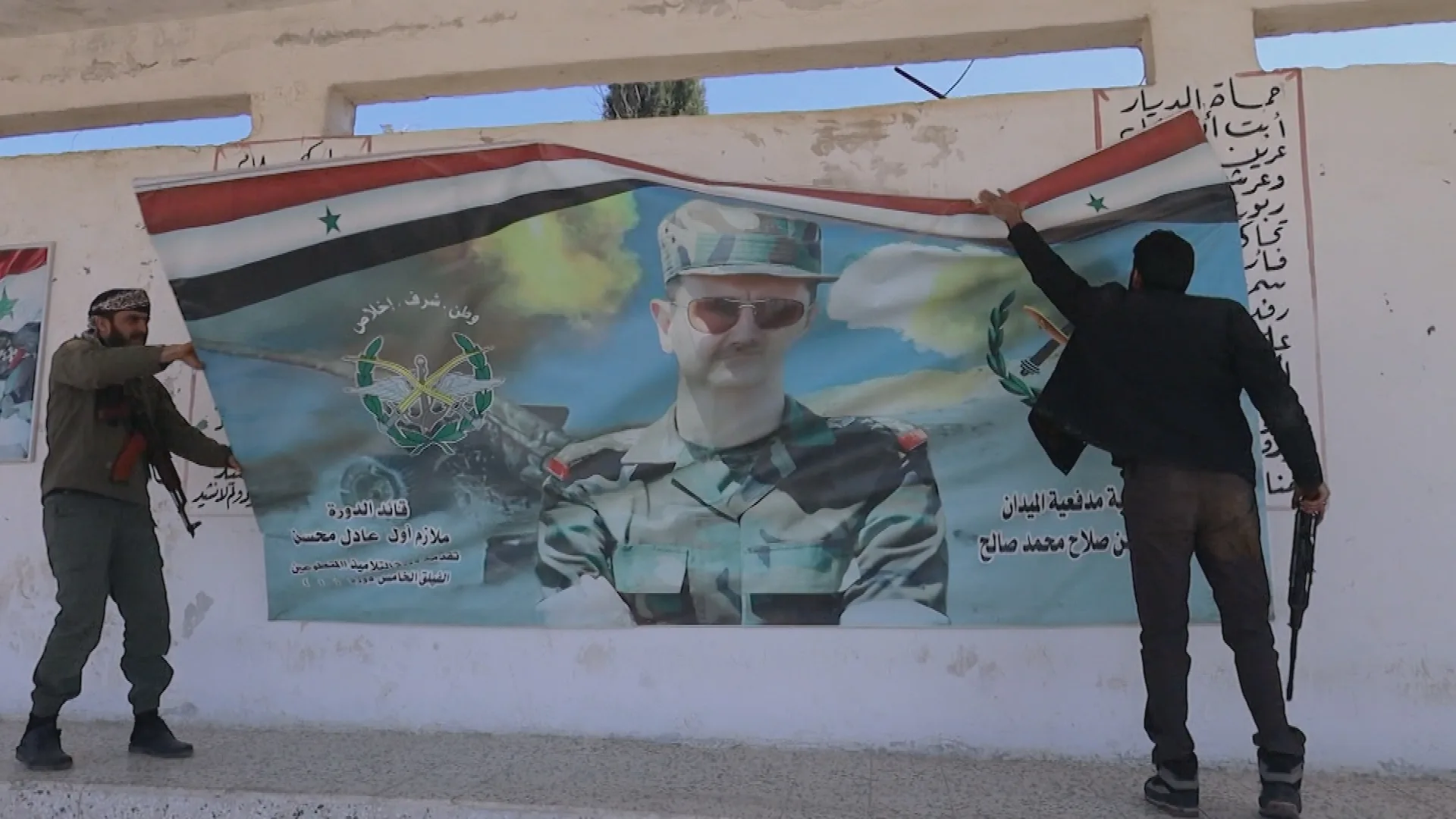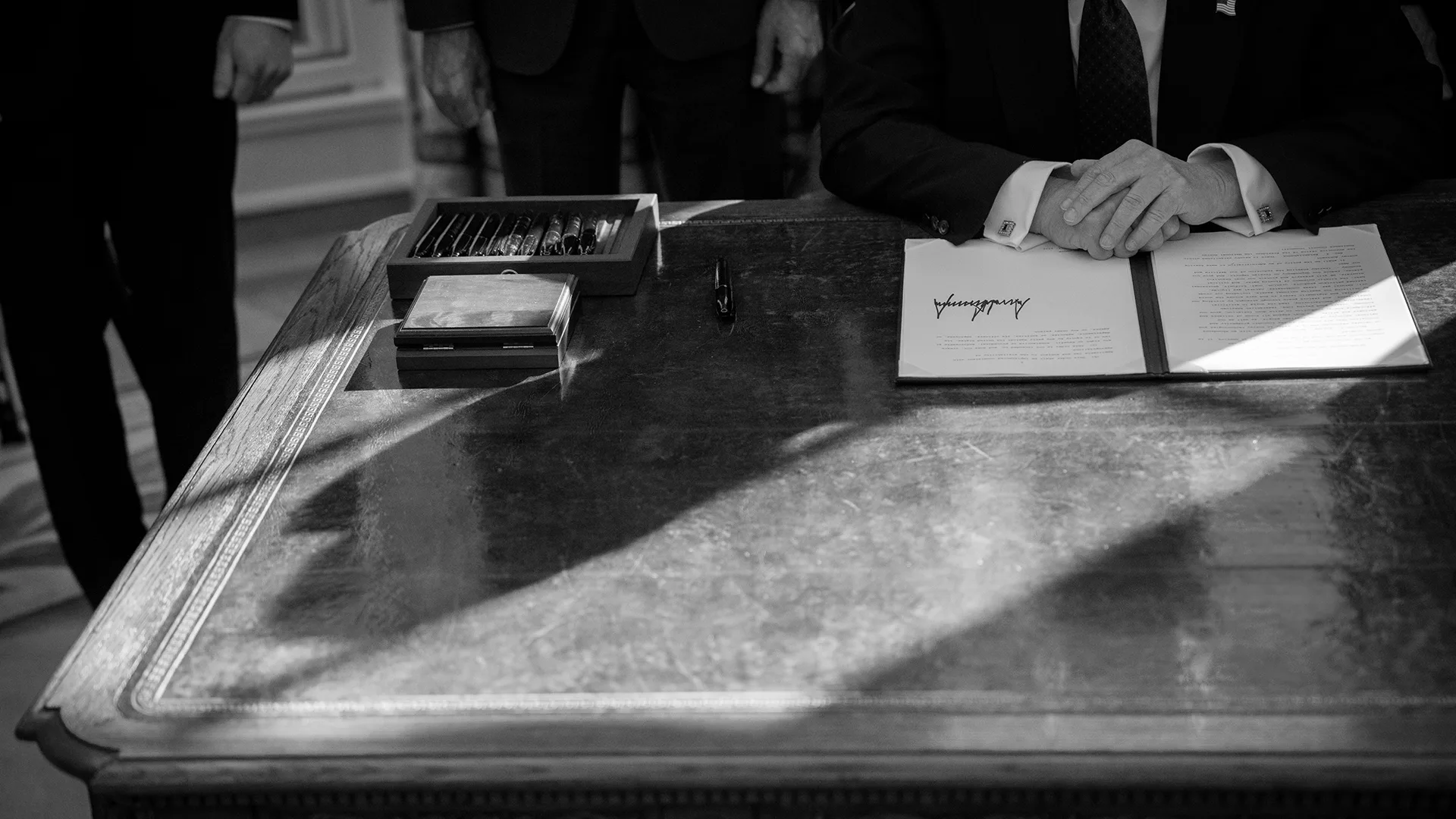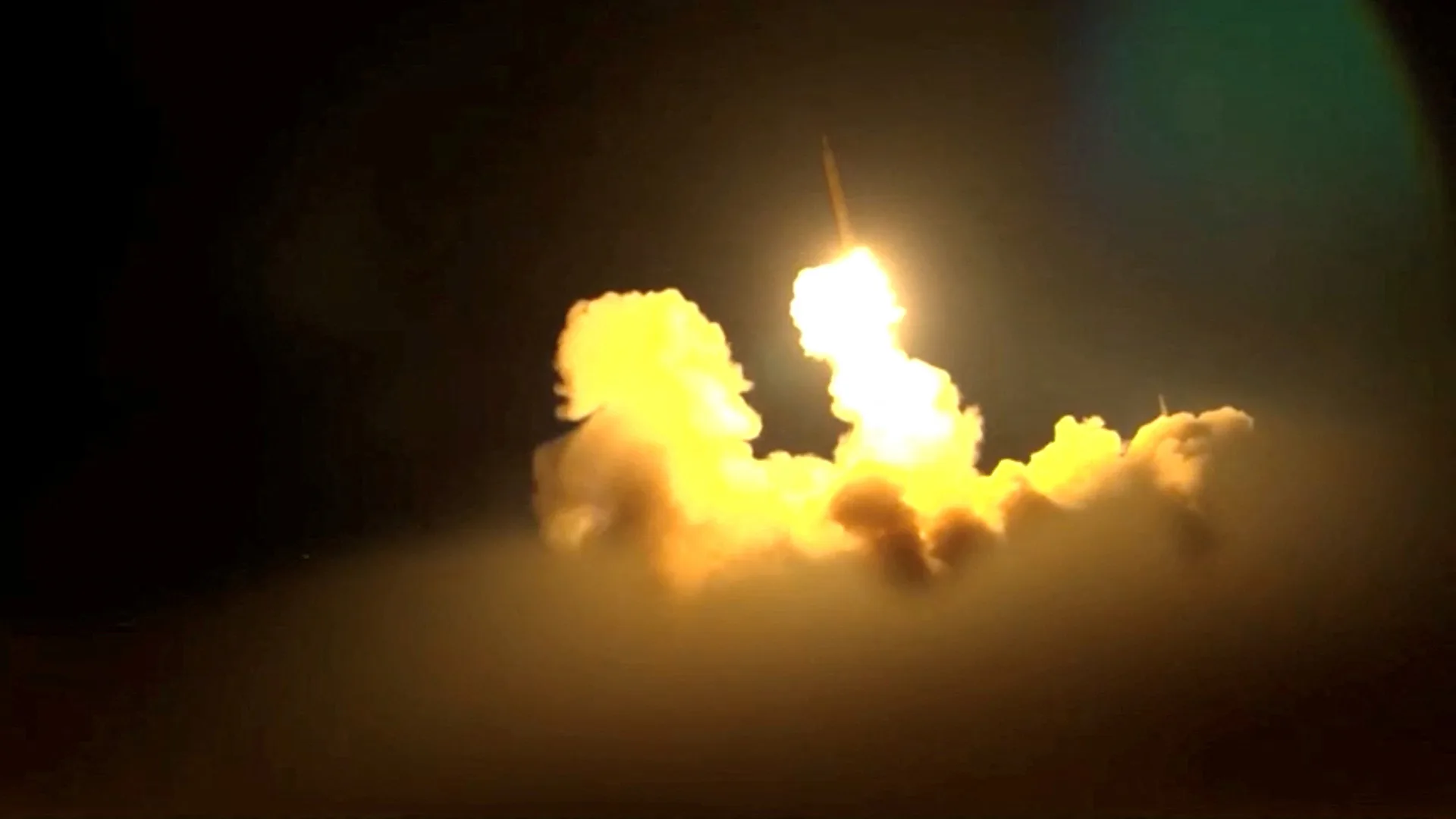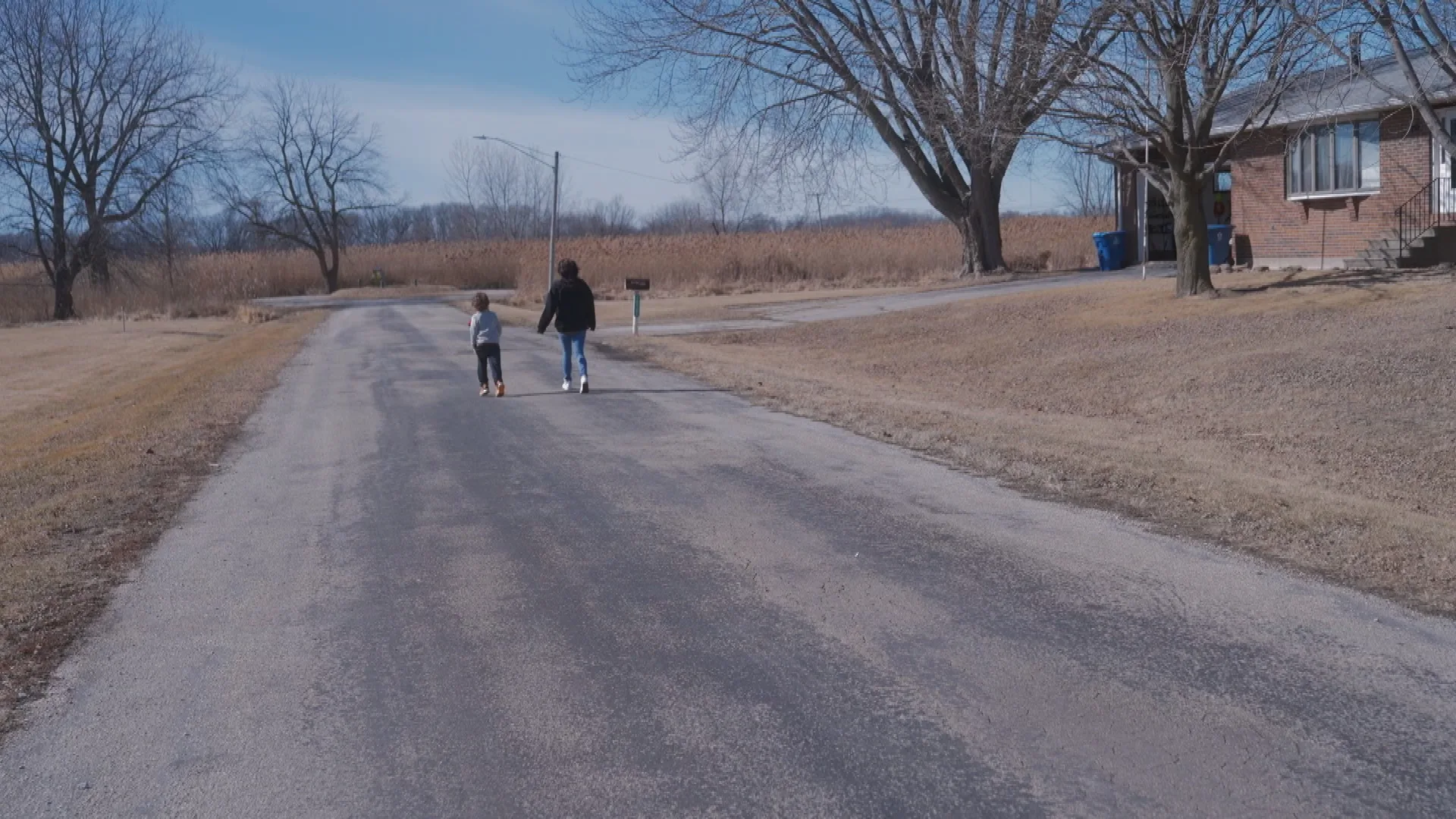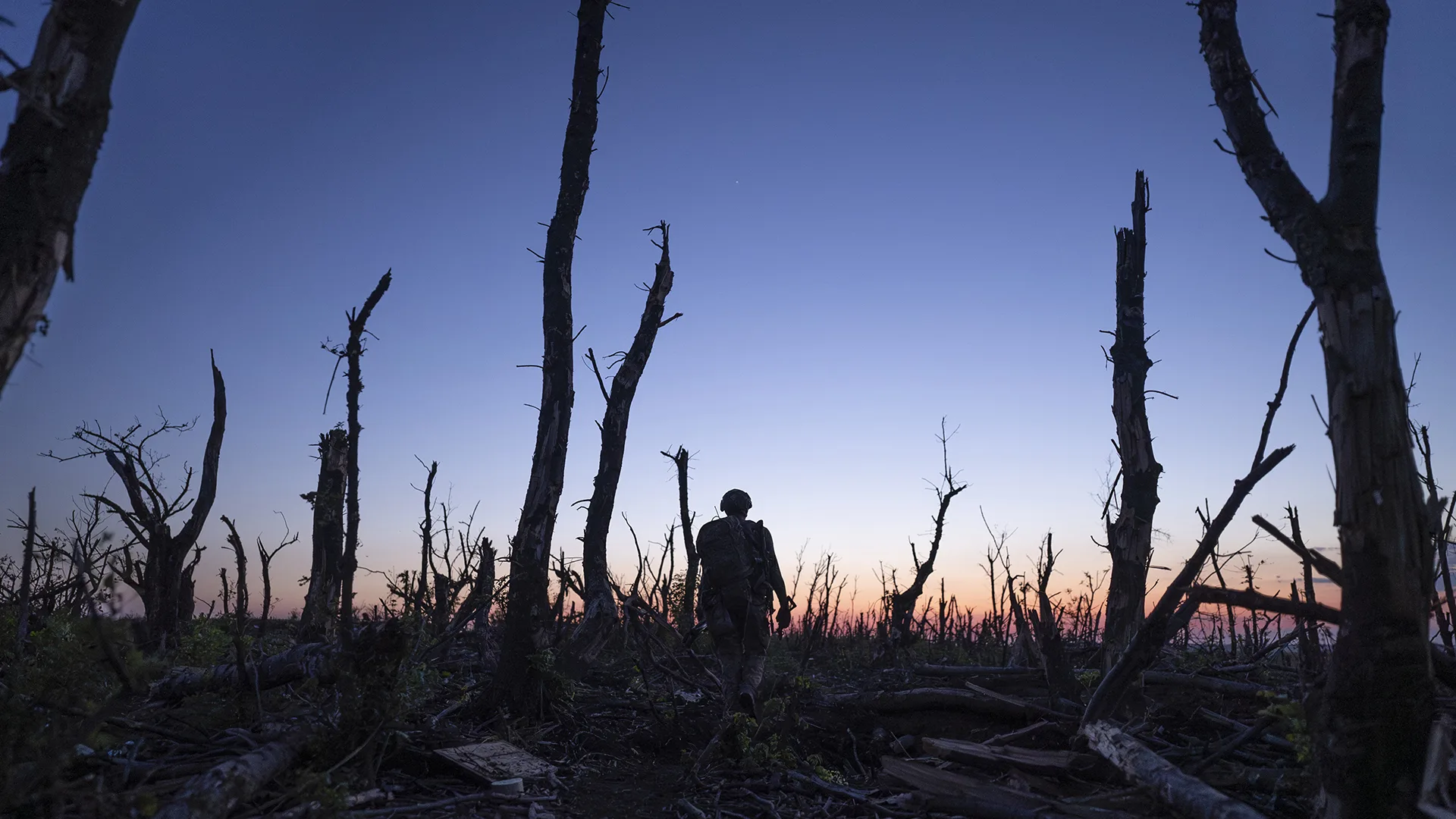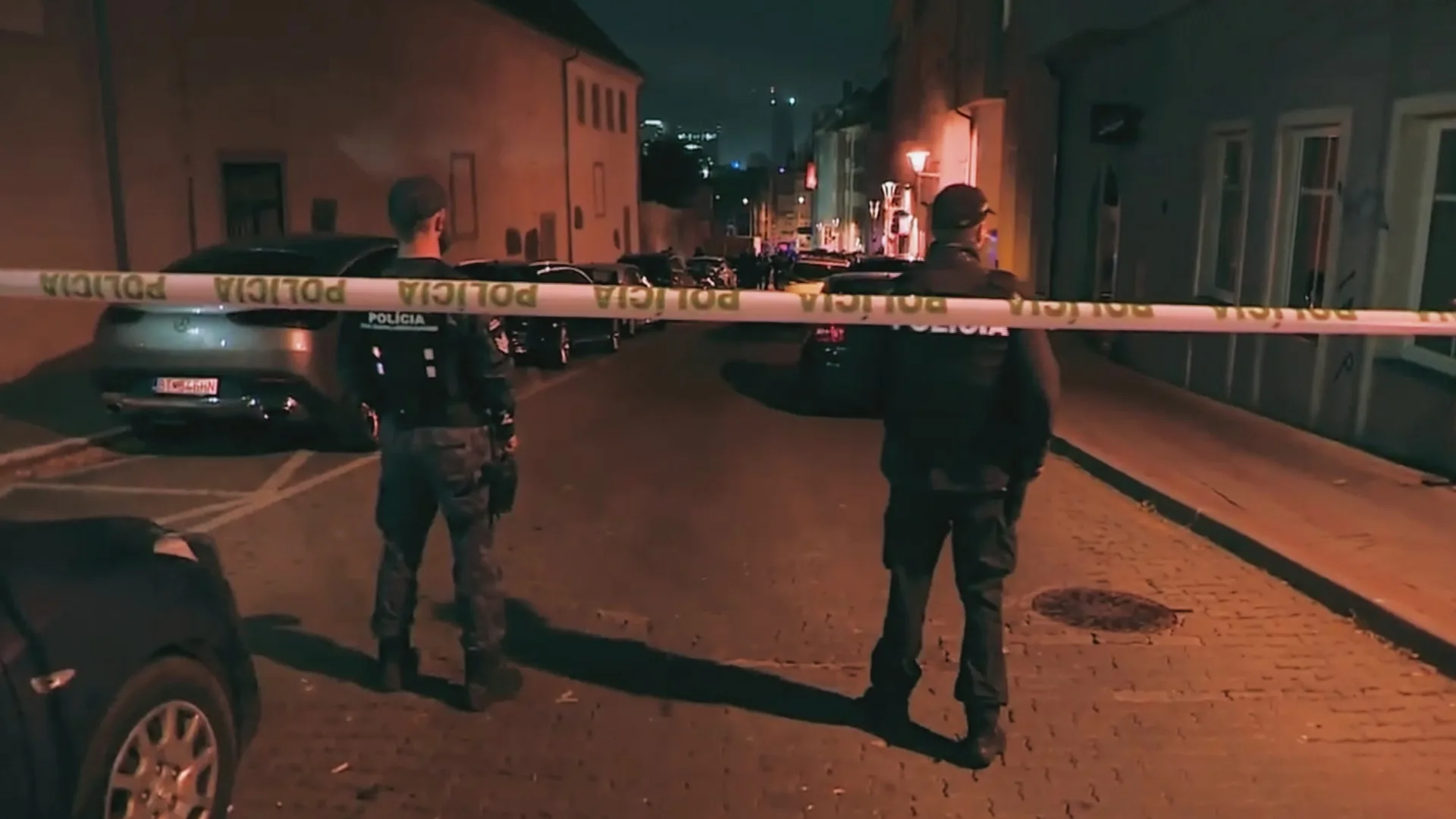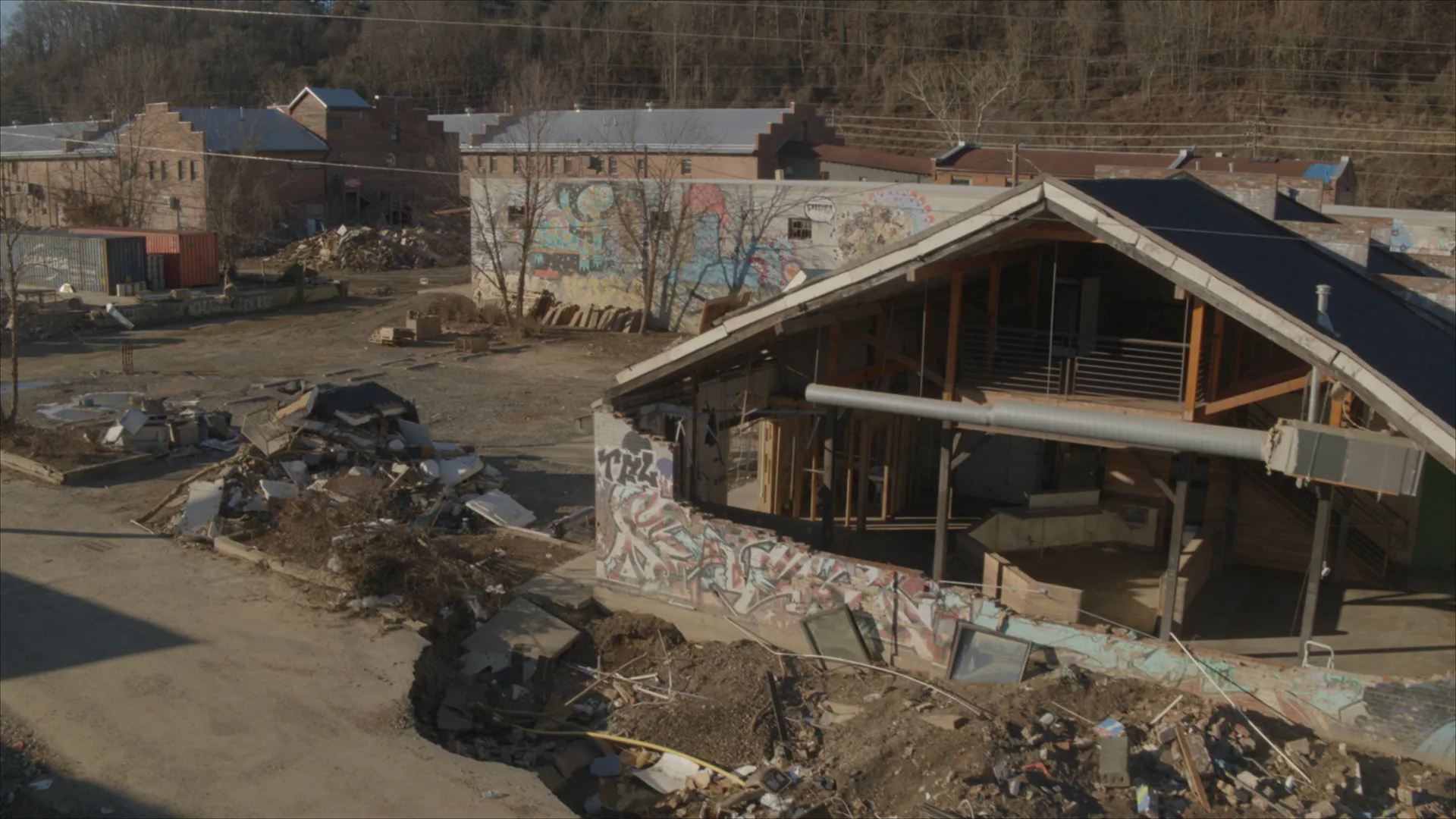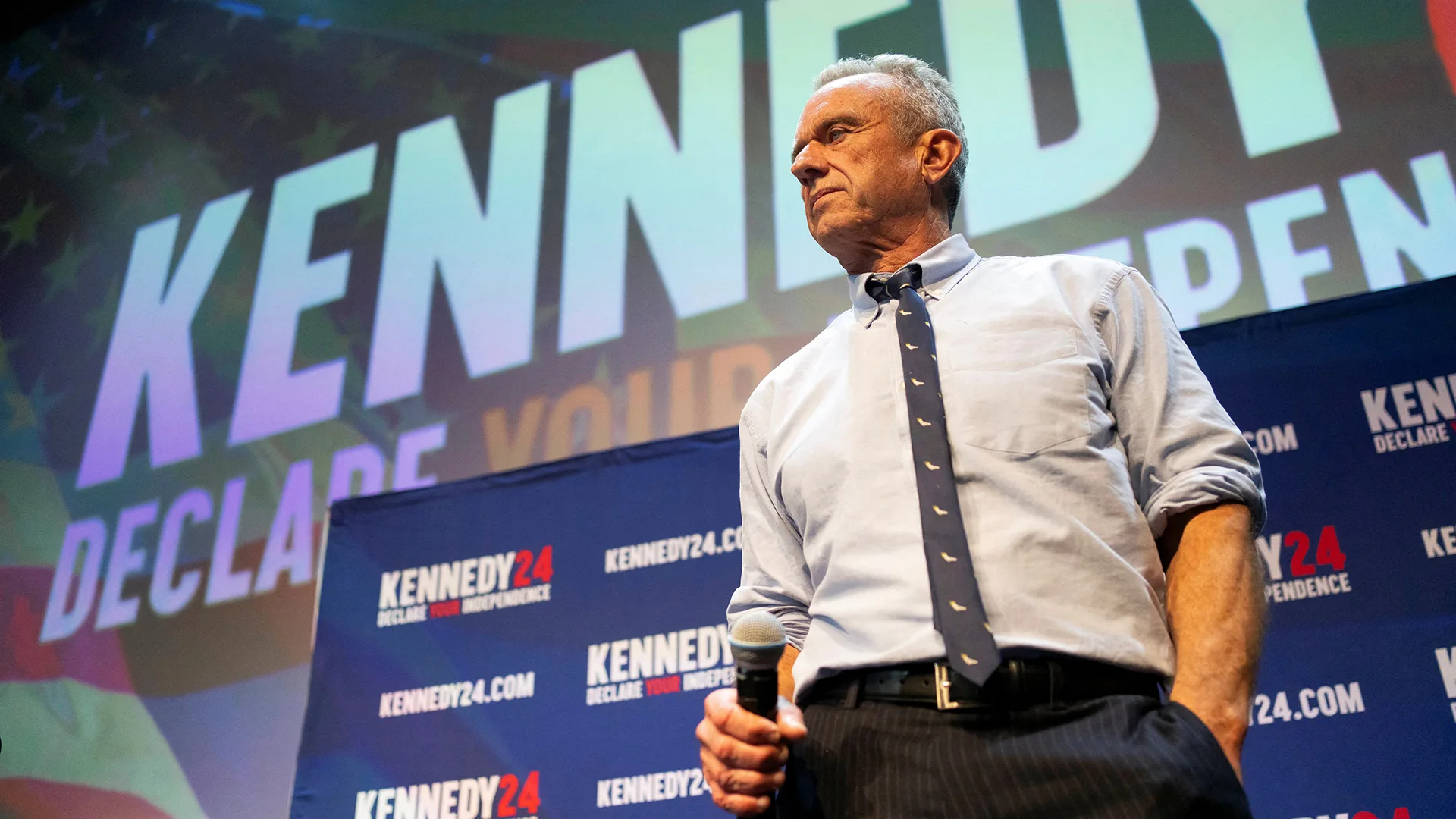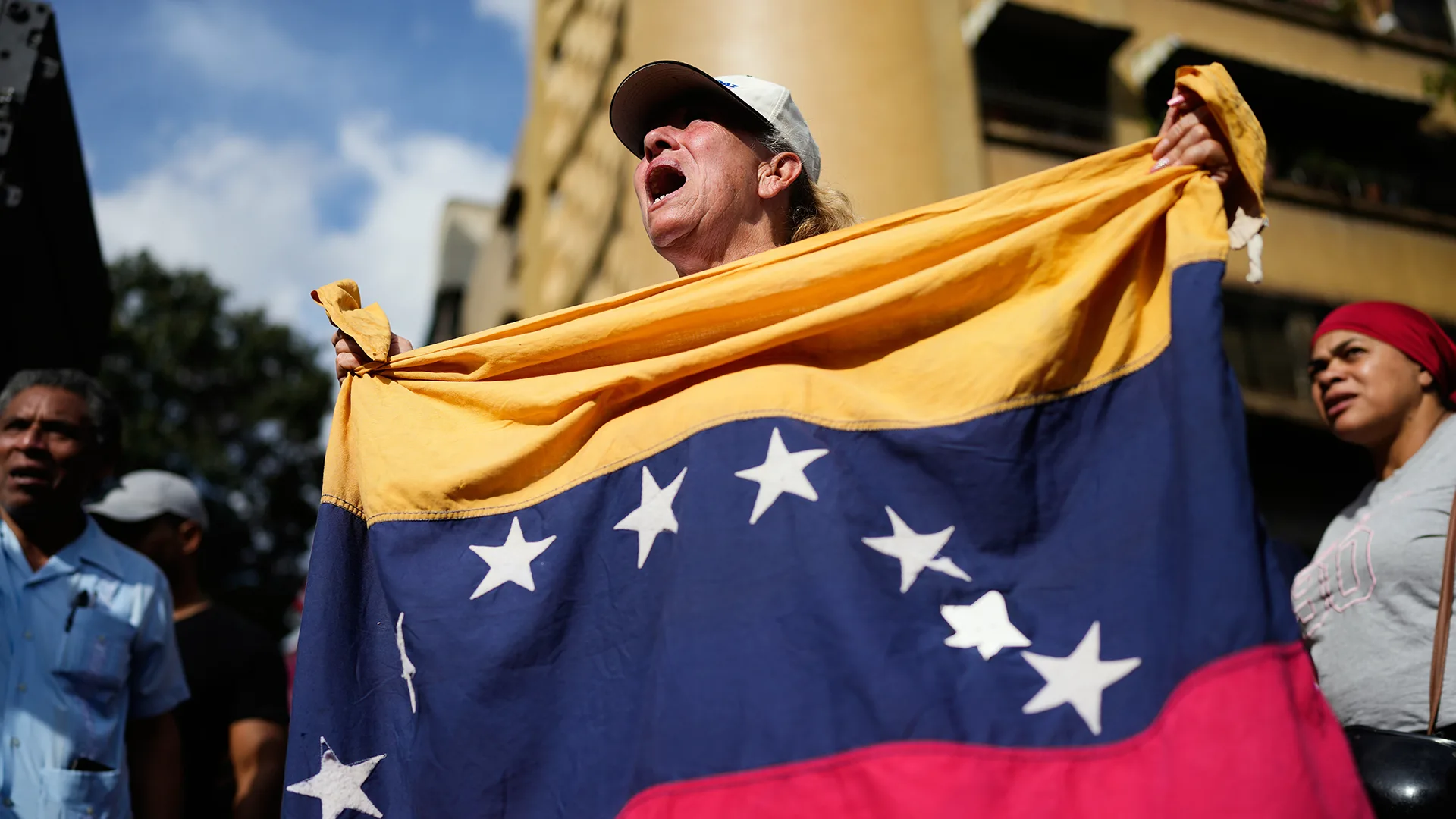The Regime
November 7, 2011
22m
A profile of the dictator who has managed to hold on longer than any amidst the Arab unrest -- President Bashar al-Assad
The Regime
November 7, 2011
22m
Share
A profile of the dictator who has managed to hold on longer than any amidst the Arab unrest — President Bashar al-Assad.
Produced by
Transcript
Credits
Journalistic Standards
Support provided by:
Learn More
Most Watched
The FRONTLINE Newsletter
Related Stories
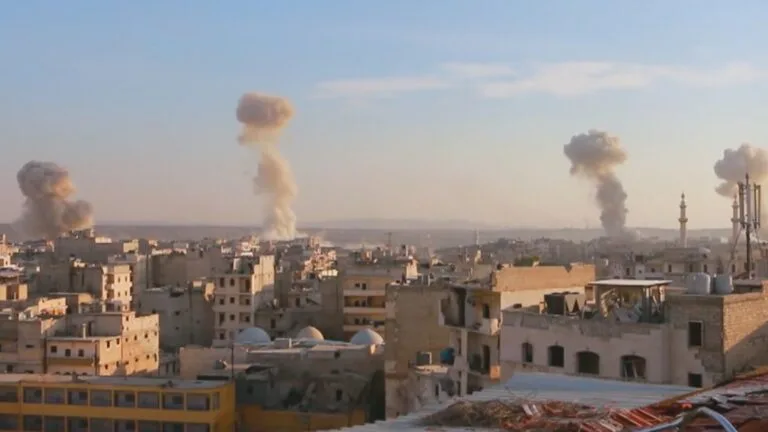
11 Years into the Syrian Conflict, Explore its Evolution, Toll & Putin’s Role
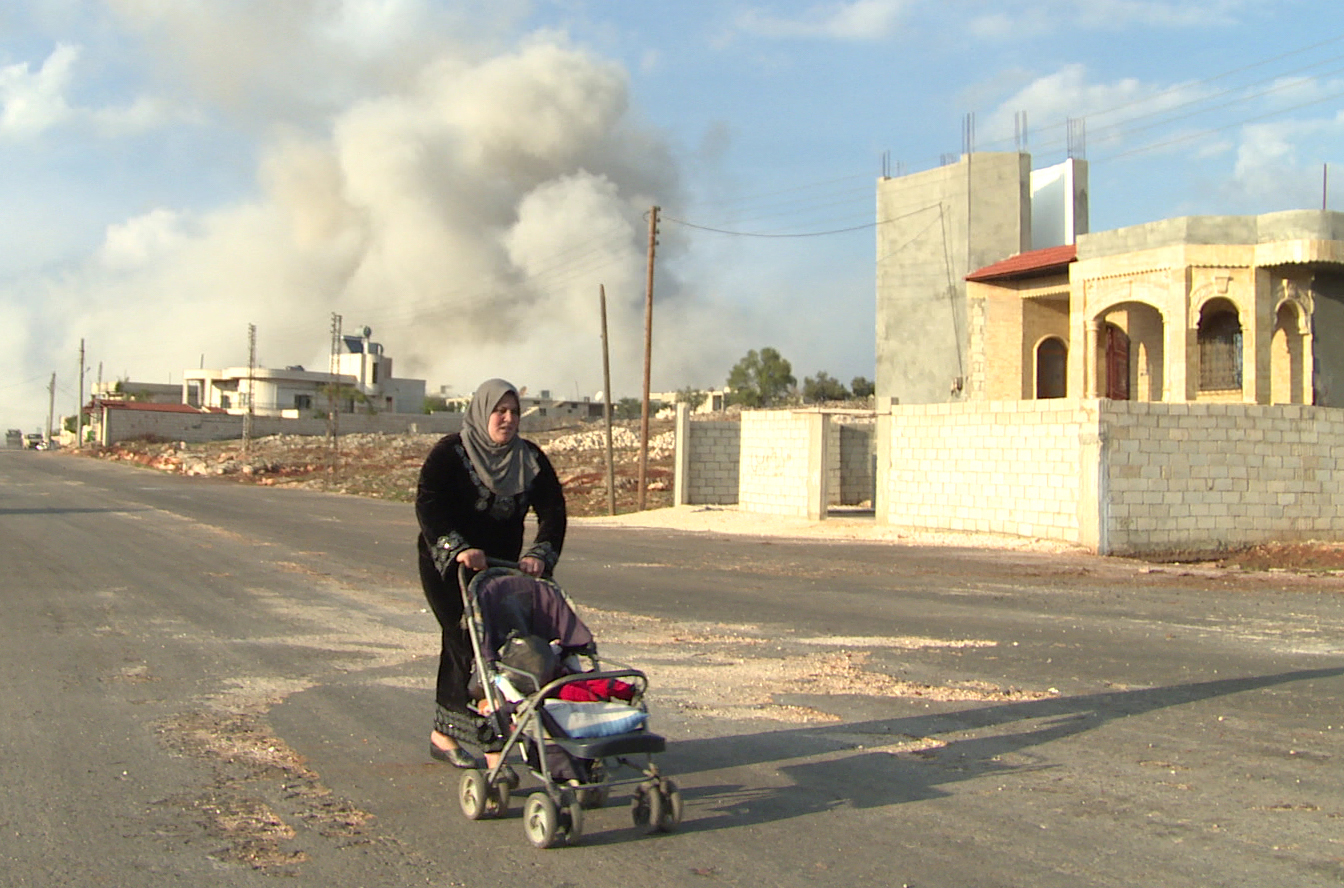
10 Years in, Explore the Syrian Conflict’s Origins, Evolution and Toll in These Streaming Documentaries
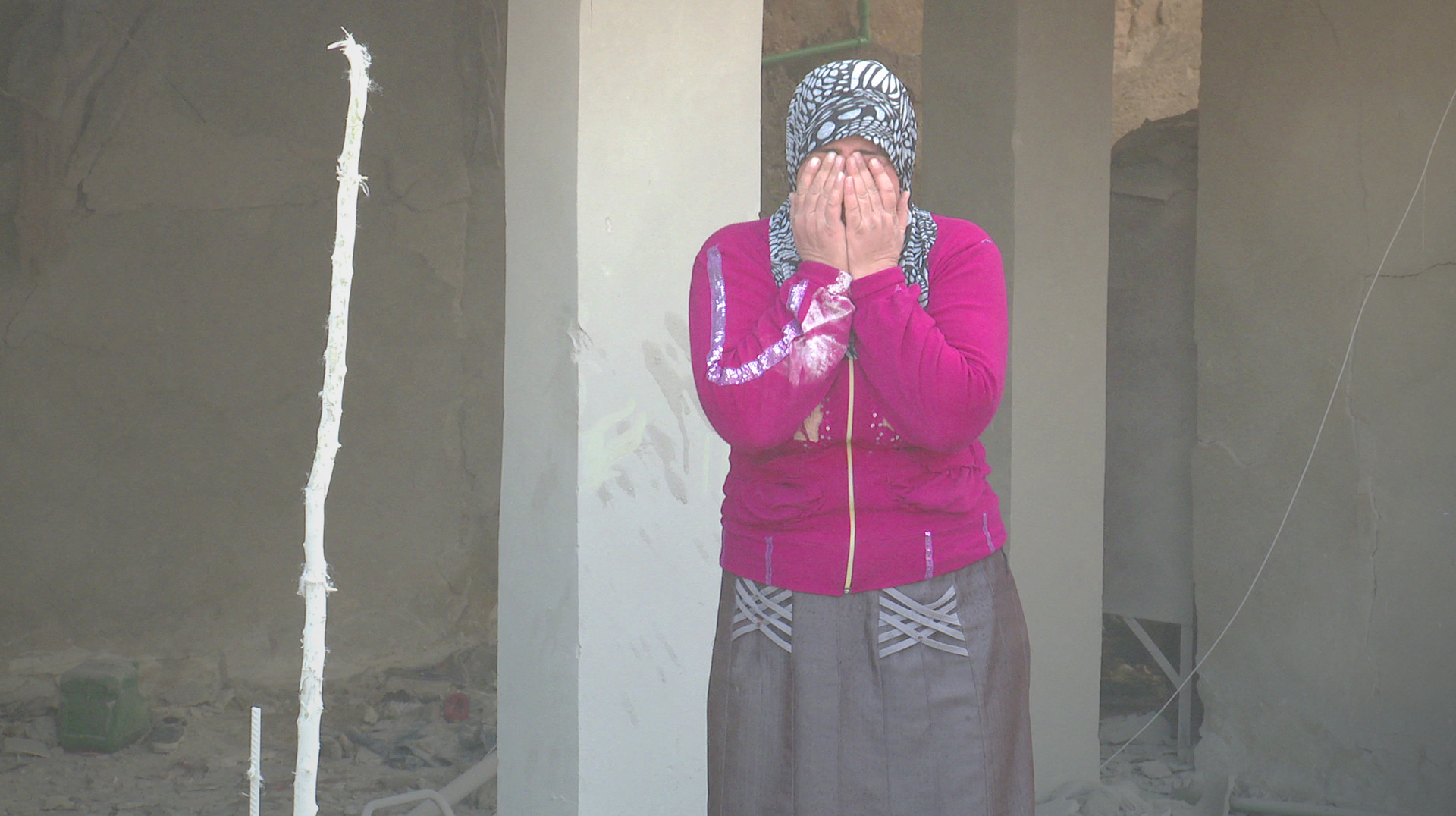
Syrian President Warns Against Western Intervention
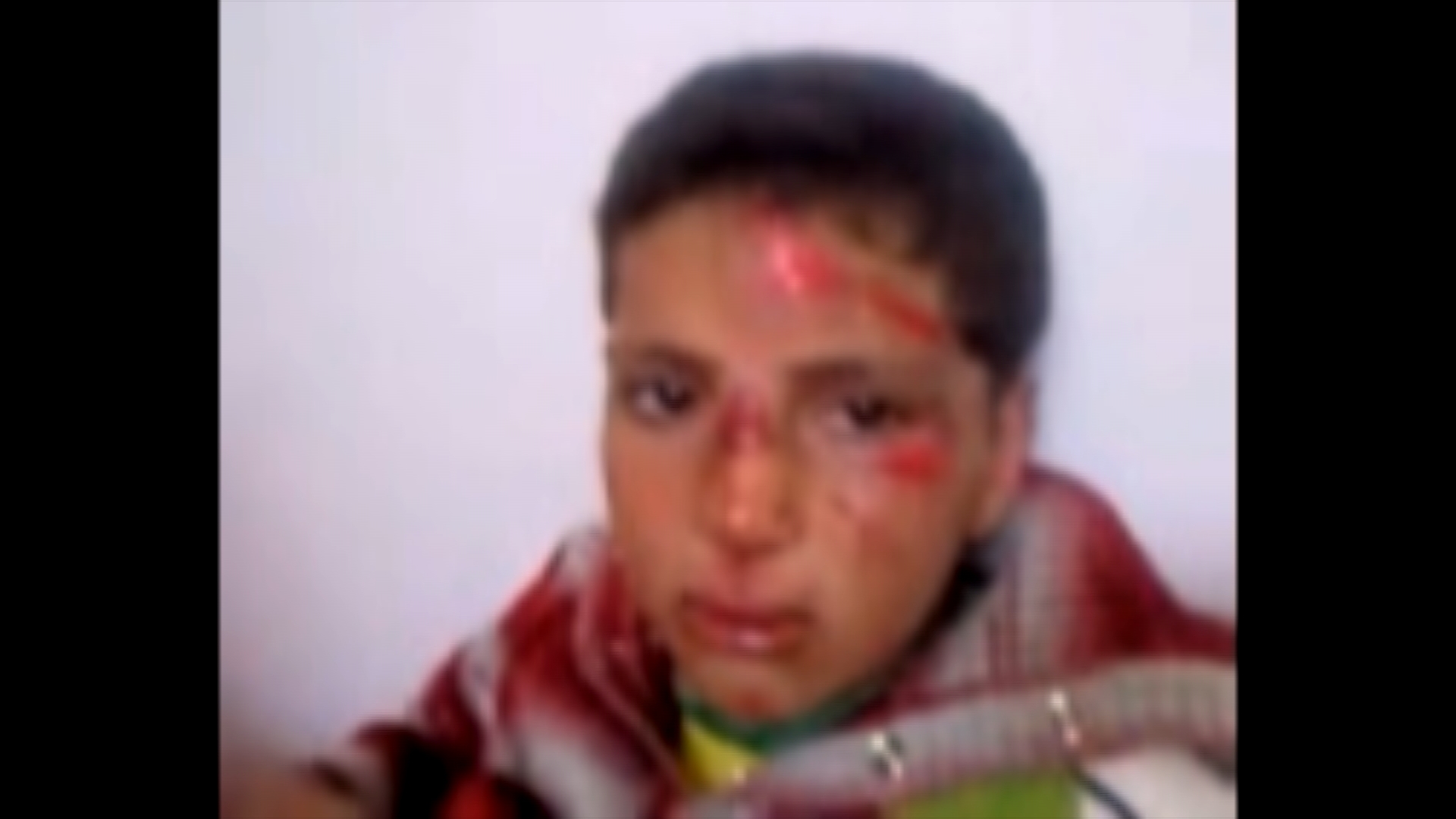
Syria Two Years Later: Bloody Civil War With No End In Sight
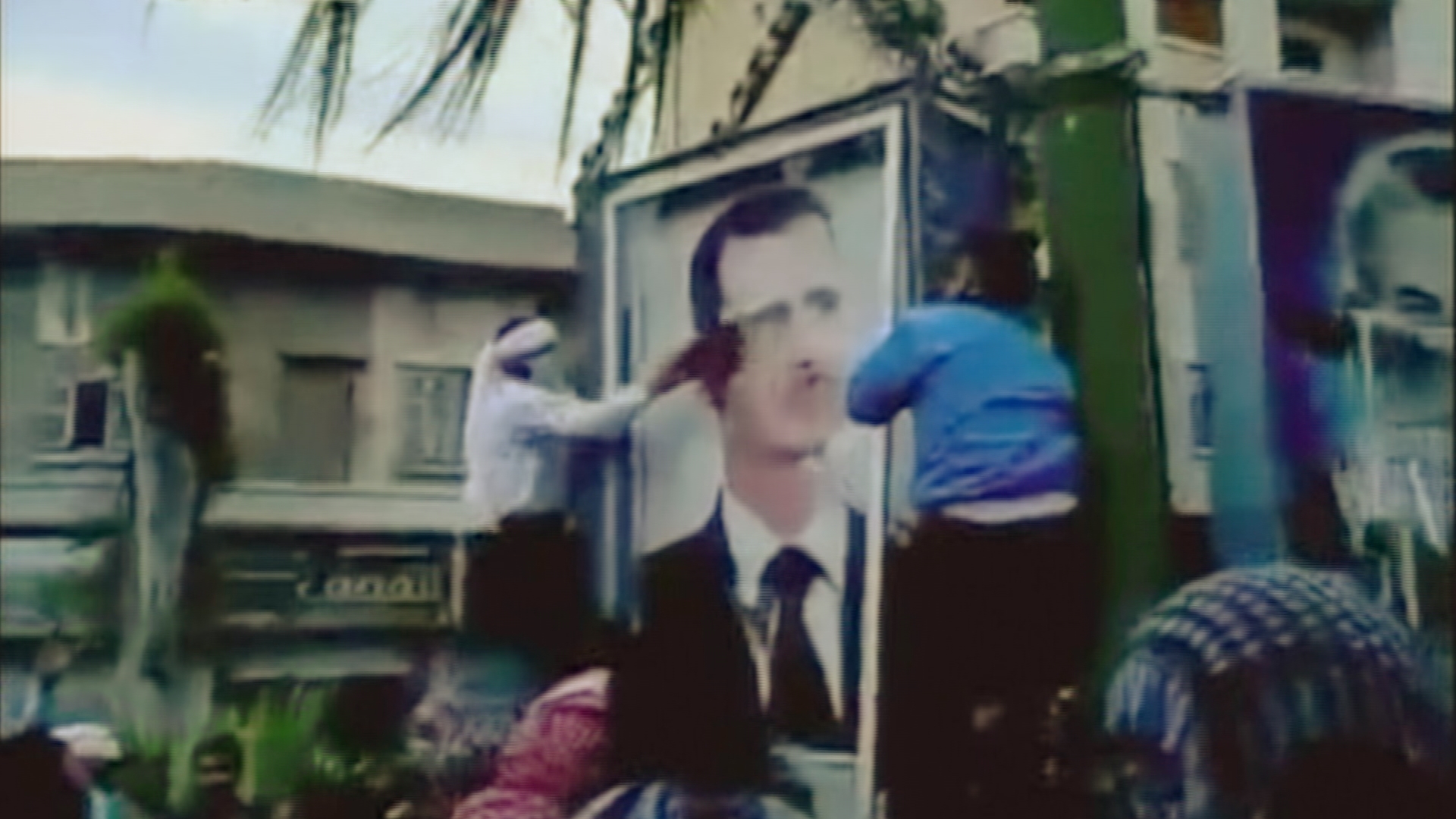
What’s Known about Syria’s “Murky” Opposition
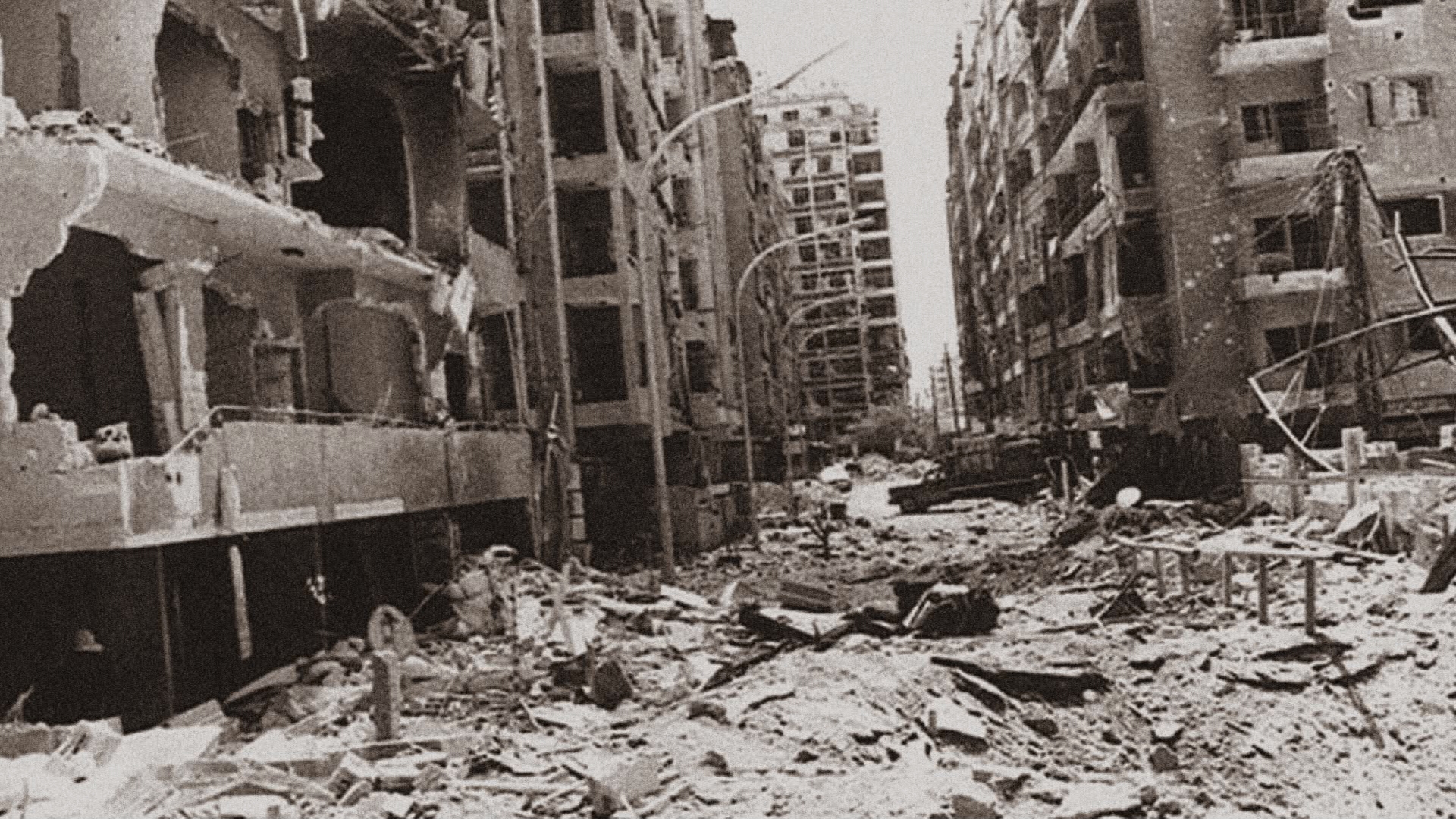
The Troubled History of Hama, Syria
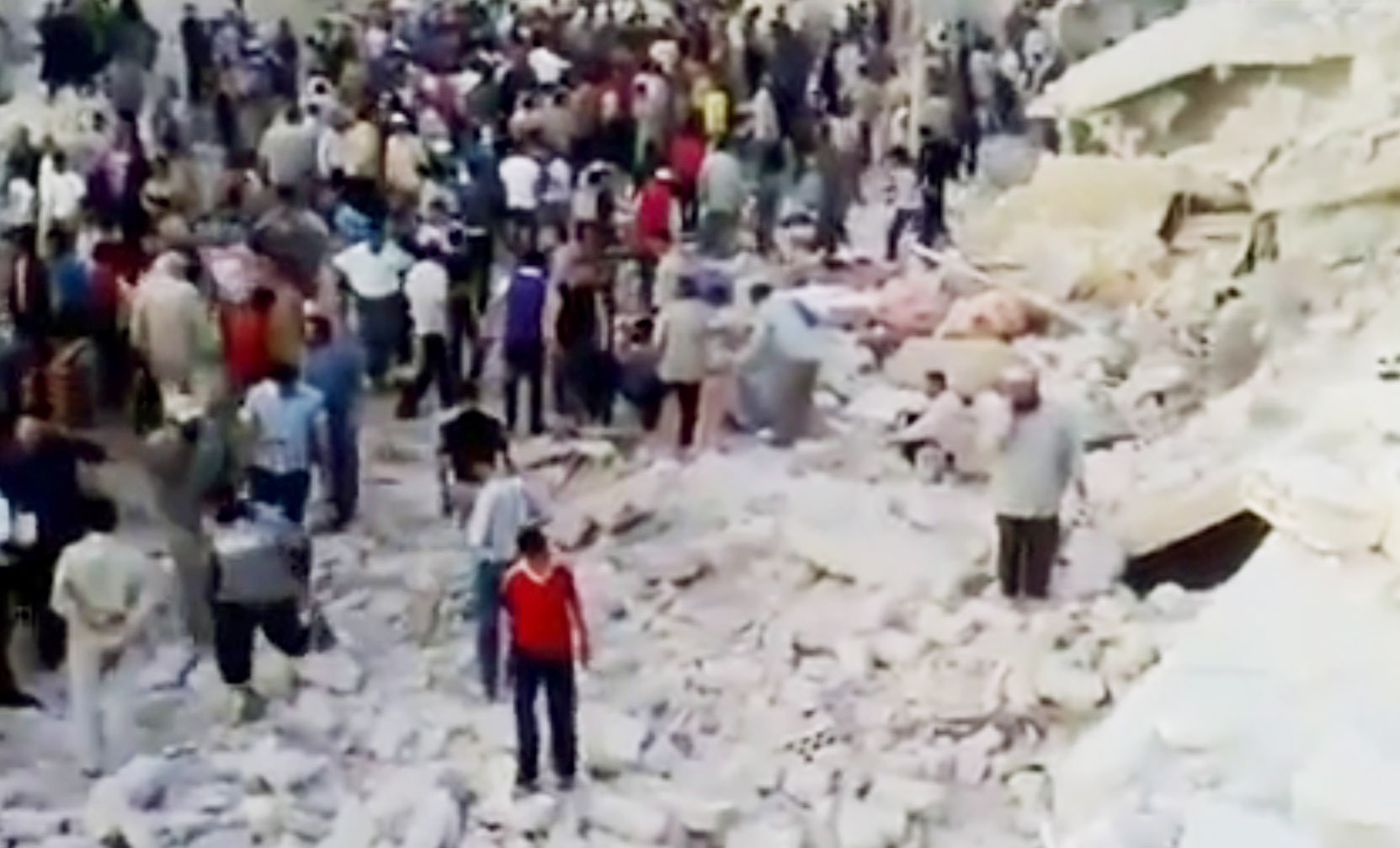
Blast in Hama, Opposition Stronghold, Disrupts Fragile Syrian Ceasefire
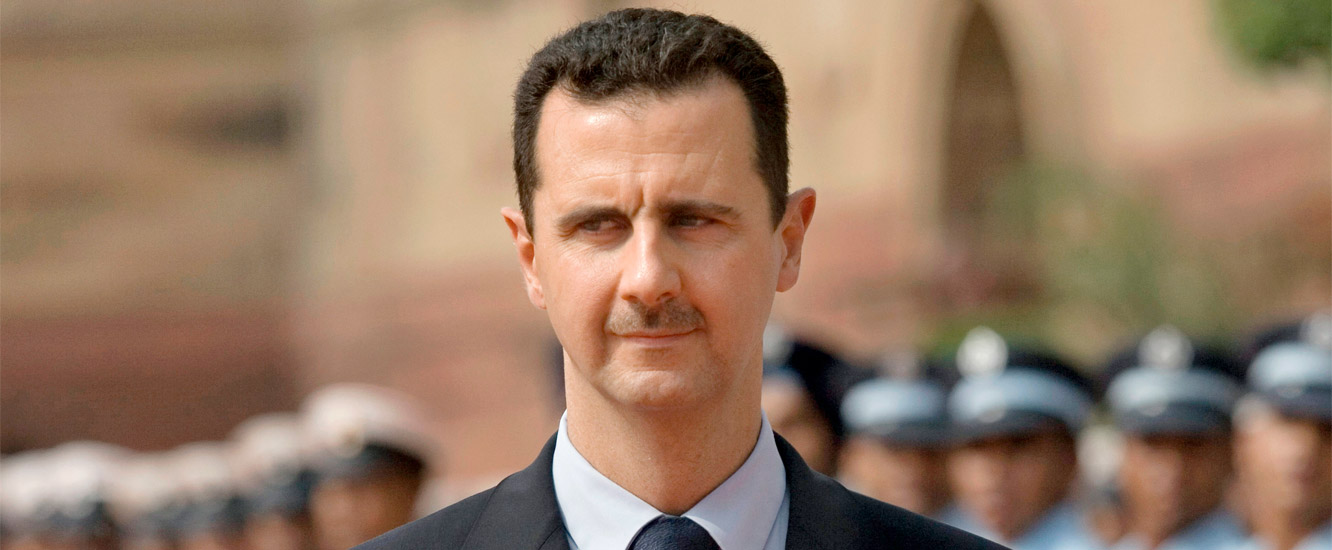
Will Syrian Truce Hold?
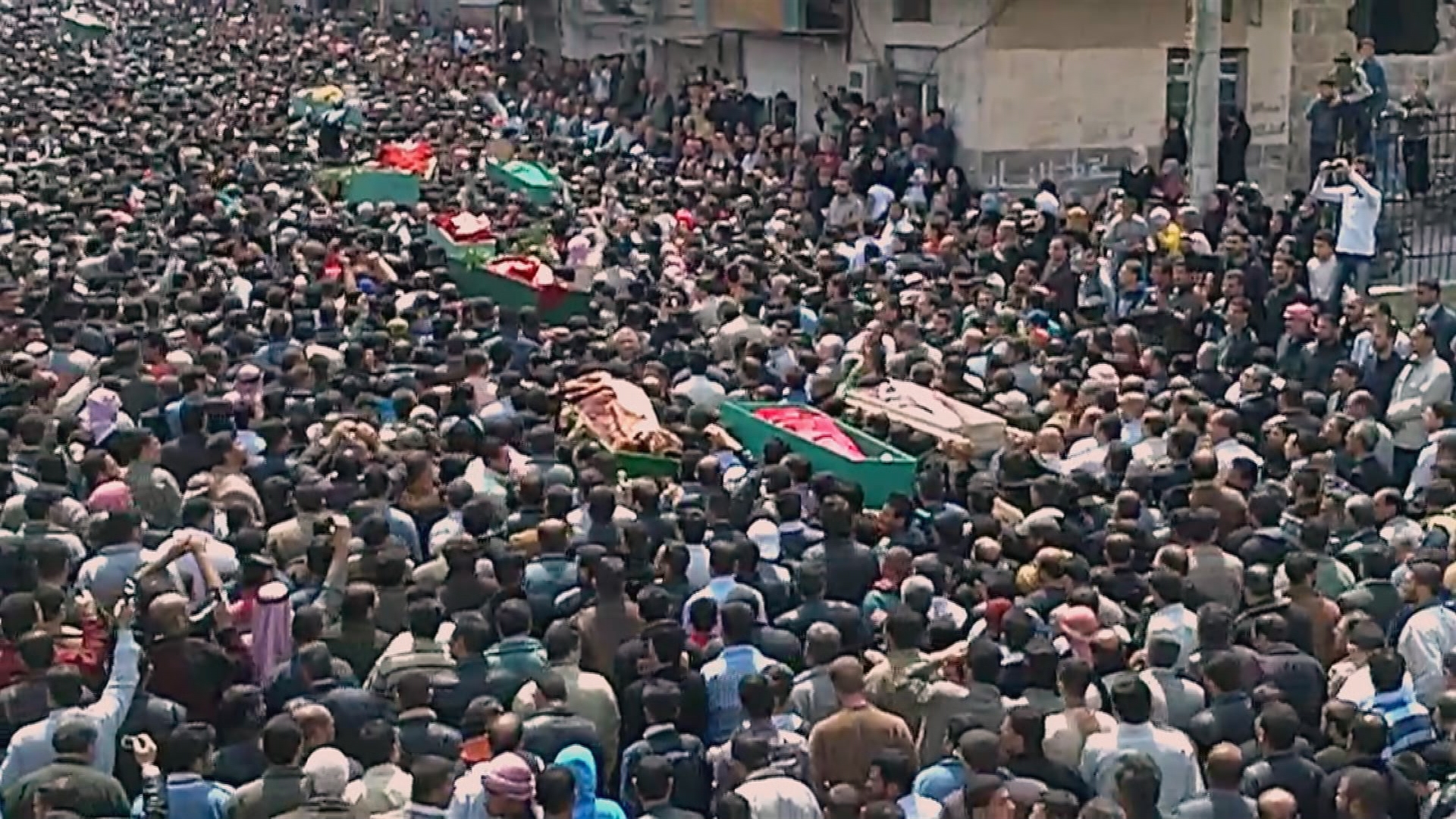
“Syrian Society Is Beginning to Fall Apart”
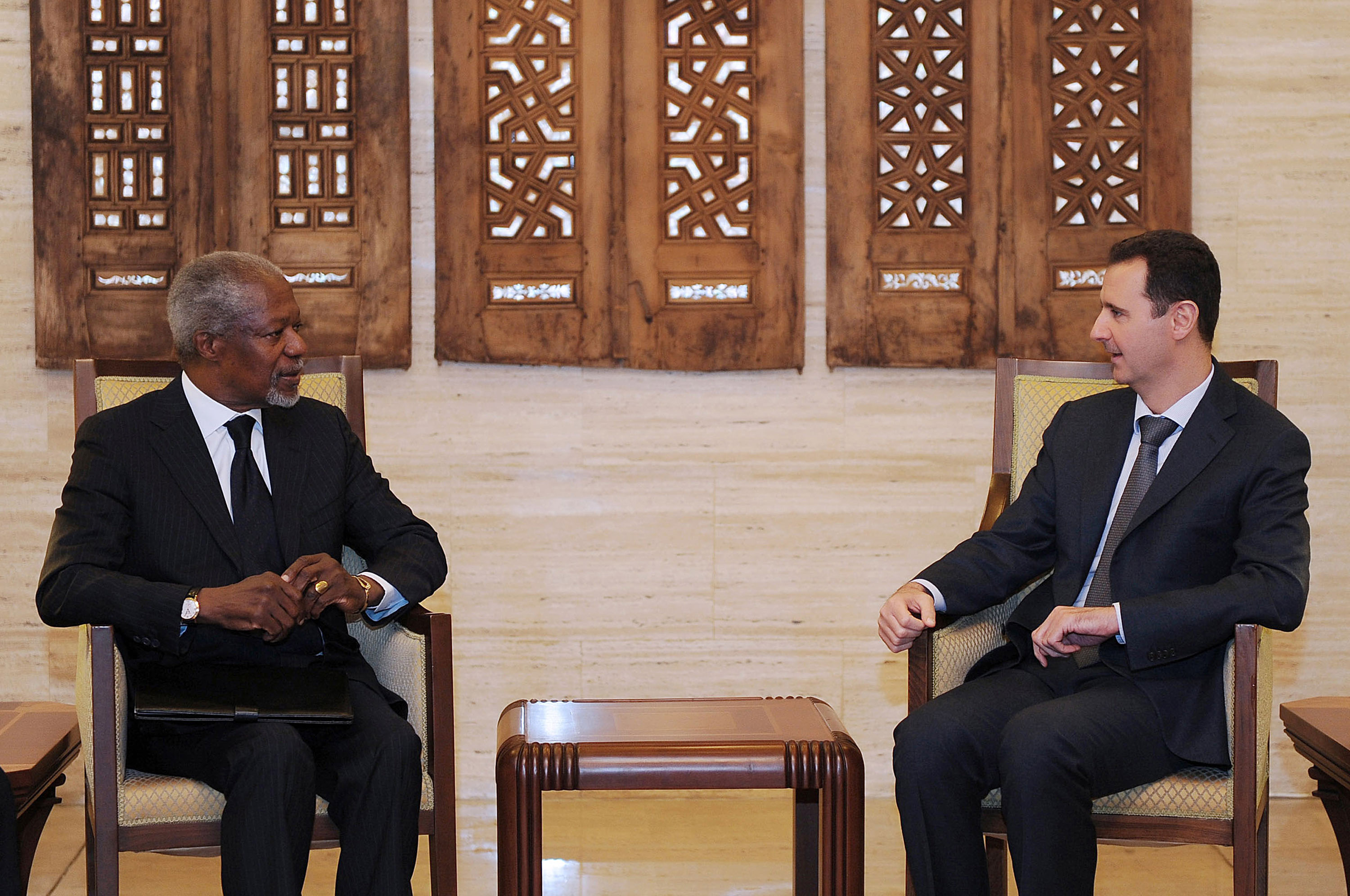
With Russian Support, U.N. Security Council Adopts Watered-Down Statement on Syria
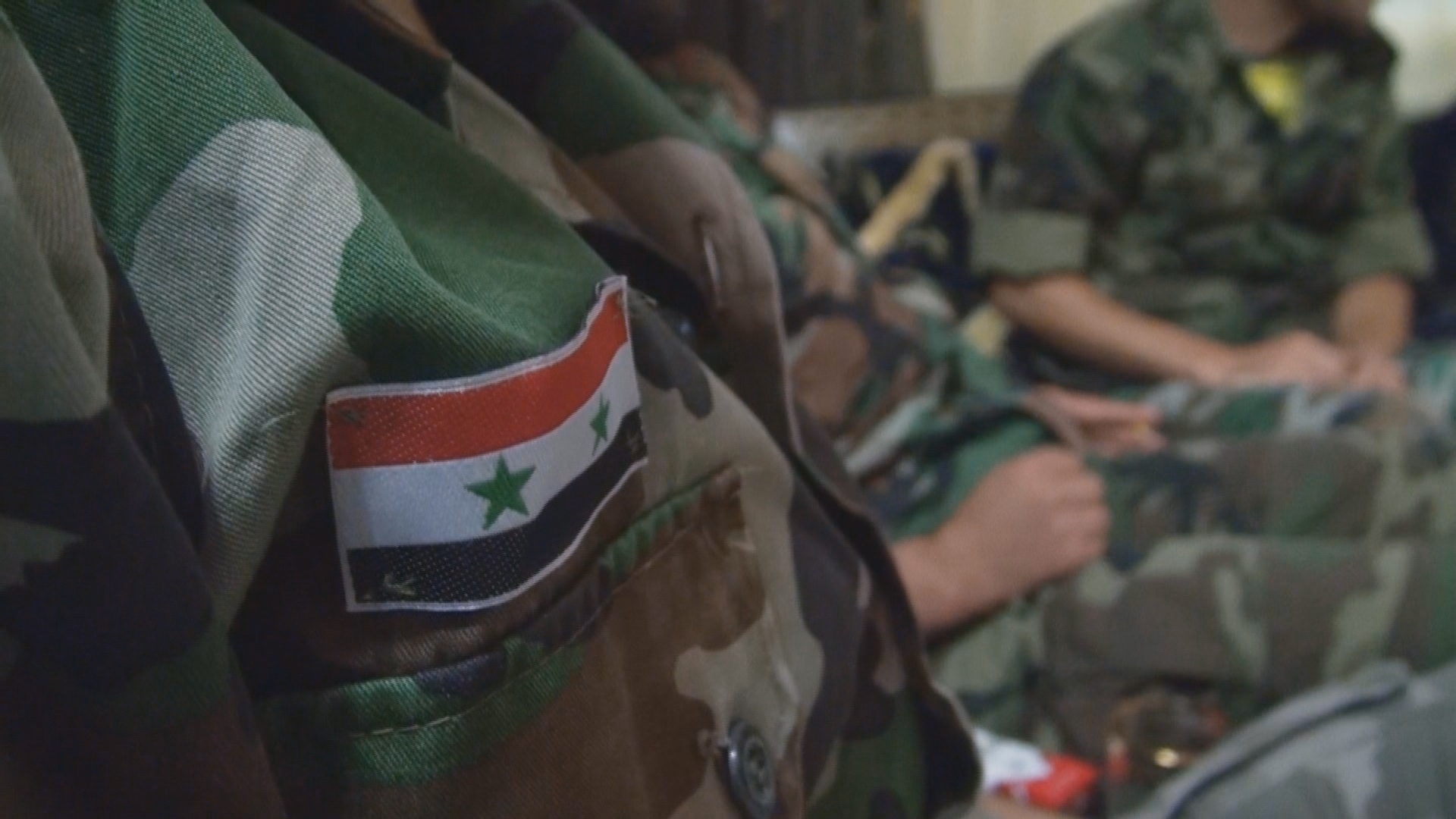
Syrian Opposition Accused of Serious Human Rights Abuses
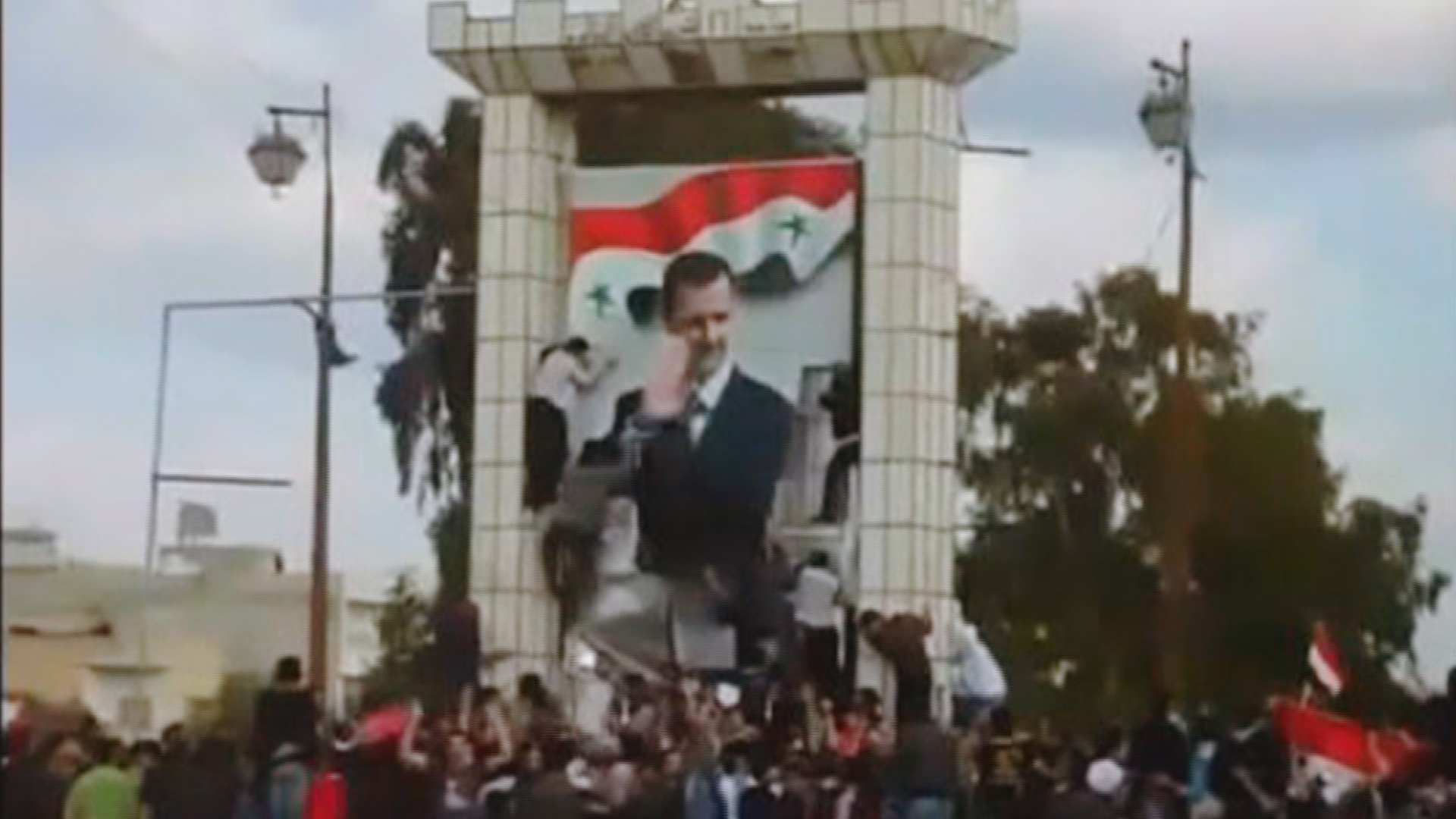
Syria One Year Later: Growing Evidence of Torture, Detainee Abuse
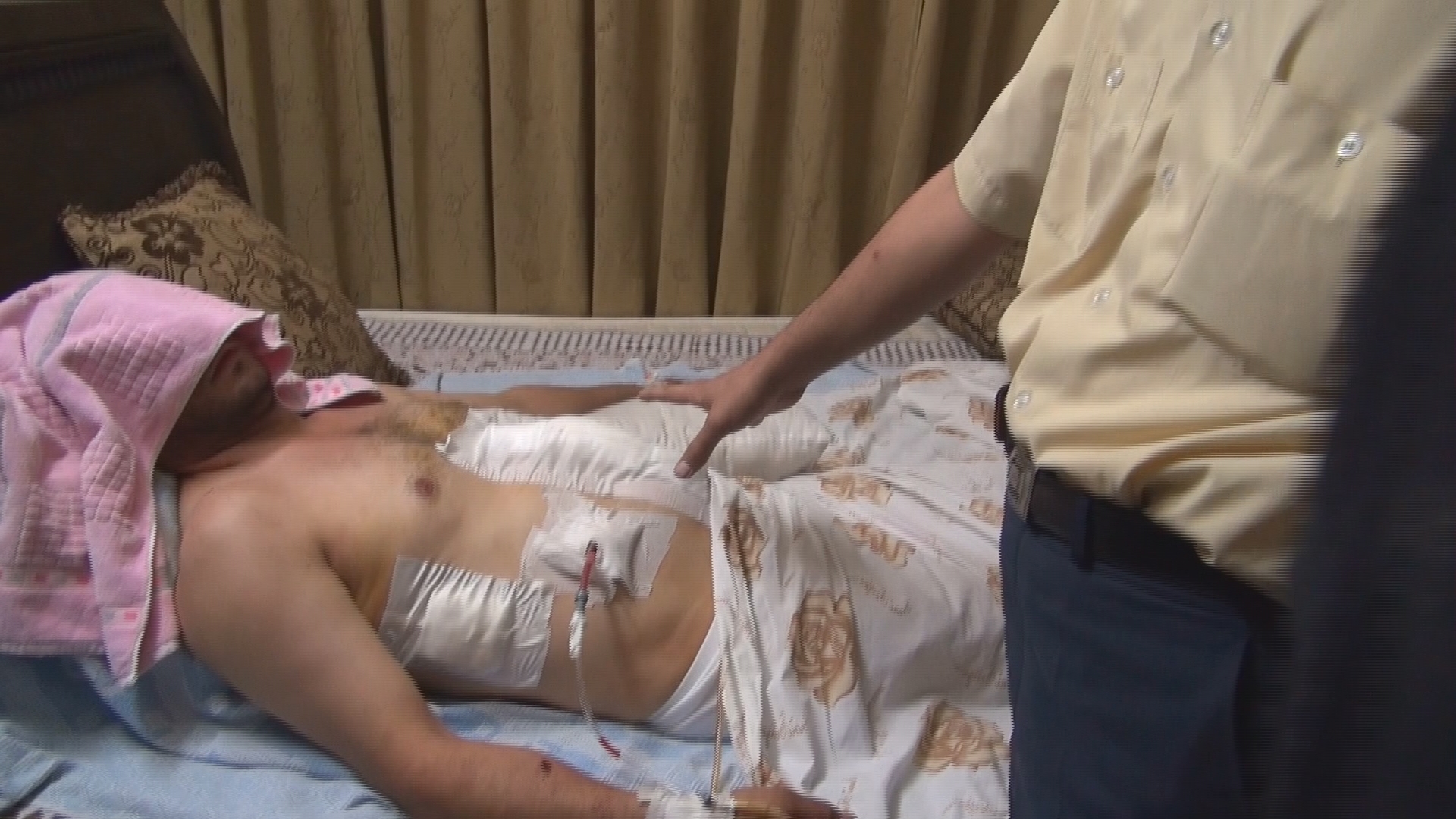
Rare Video Evidence of Torture in Syrian Hospitals

One Woman’s Proposal to Halt the Violence in Syria

Why Hasn’t Syria’s Assad Been Labeled A War Criminal?
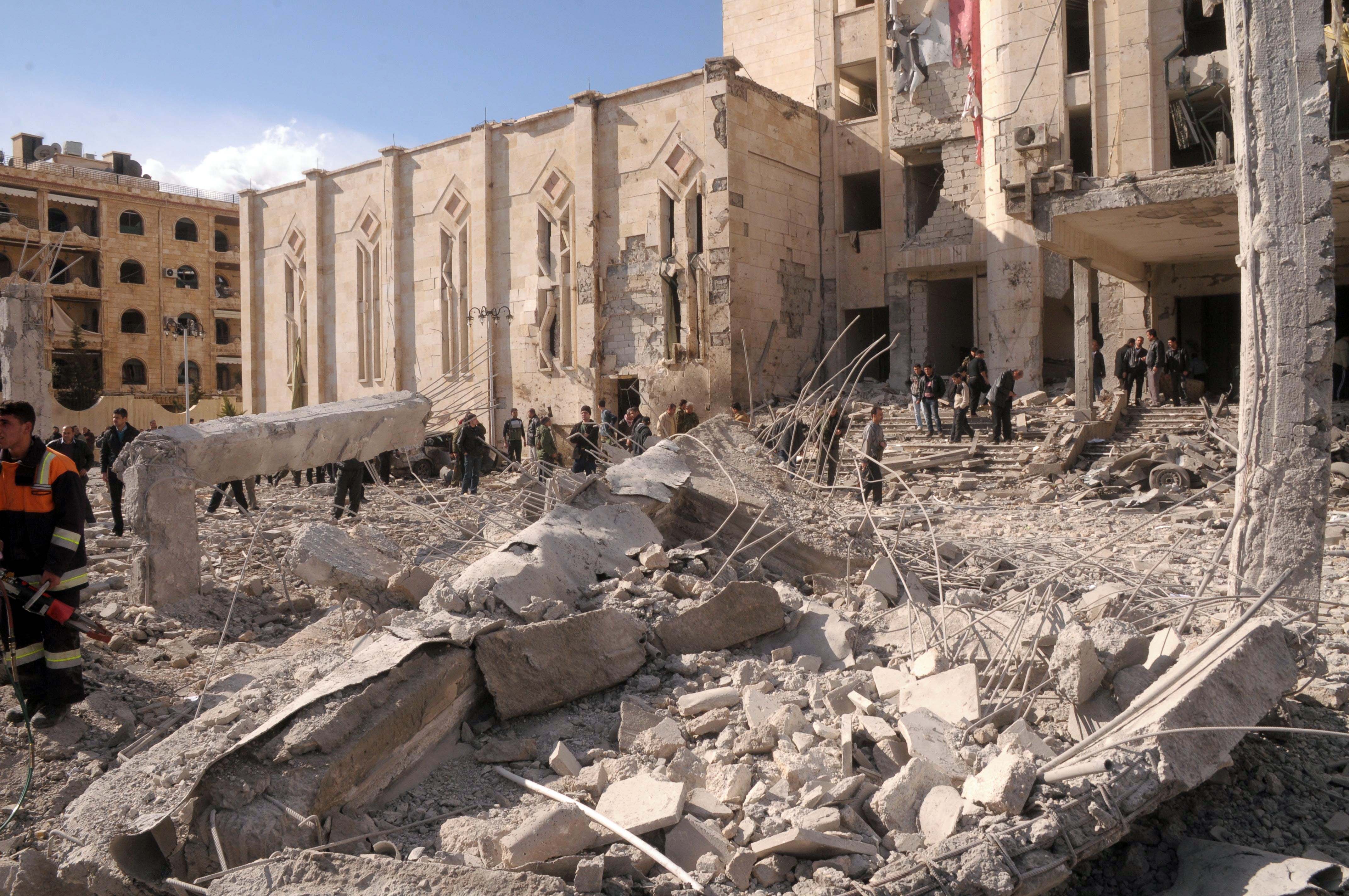
What Is Al Qaeda Doing in Syria?
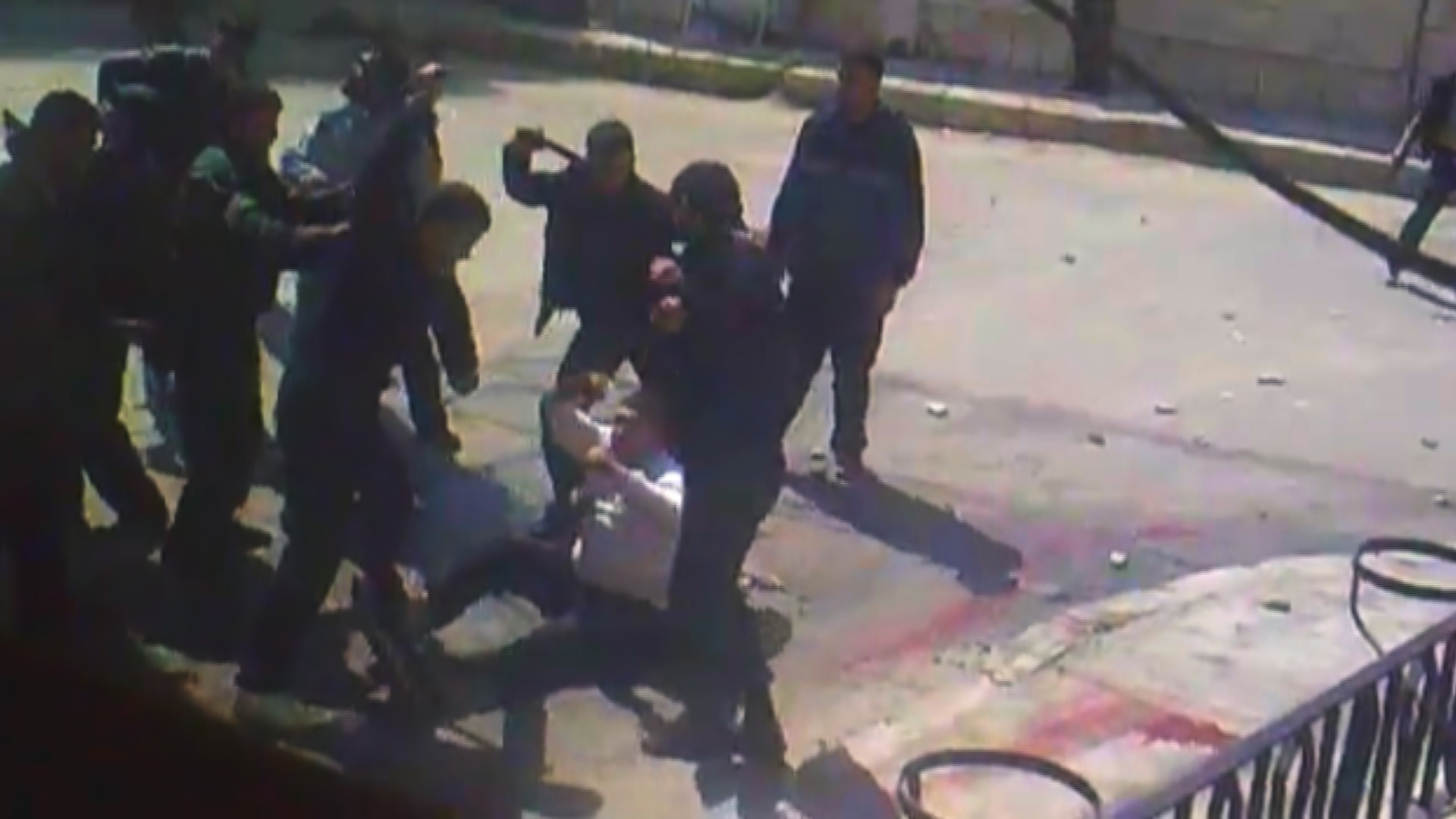
U.N. Report Accuses Syria of Crimes Against Humanity

How Has Syria’s Assad Managed to Hold Power for So Long?
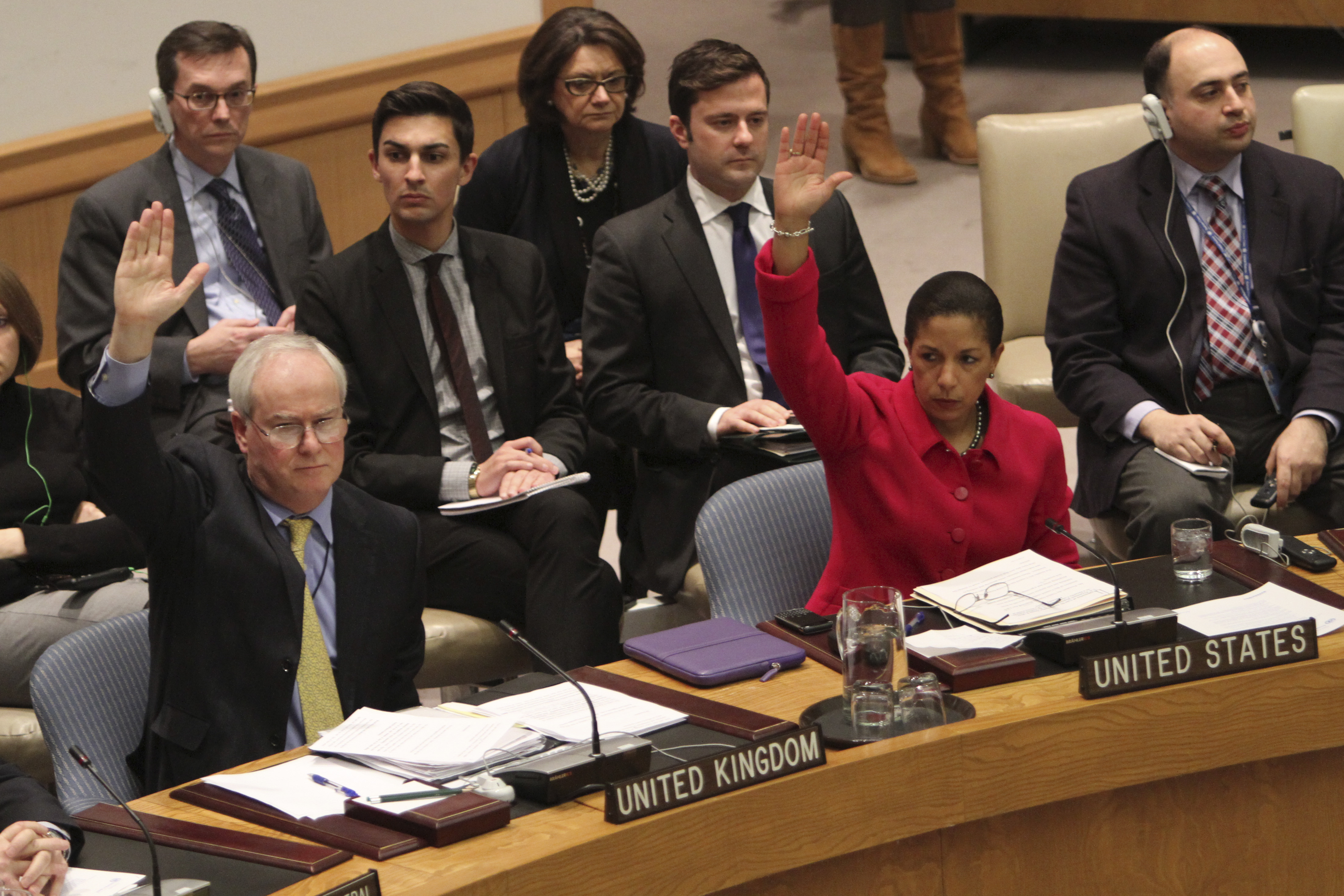
Violence Intensifies in Homs after U.N. Resolution on Syria Fails

On 30th Anniversary of Hama Massacre, Syrian Troops Lock Down City
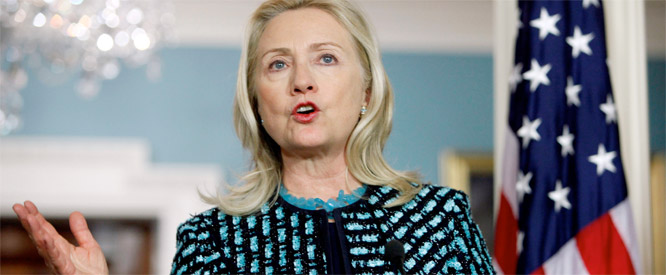
High-Stakes Showdown Over Syria at the U.N.

Syria: “We No Longer Want Arab Solutions to the Crisis”
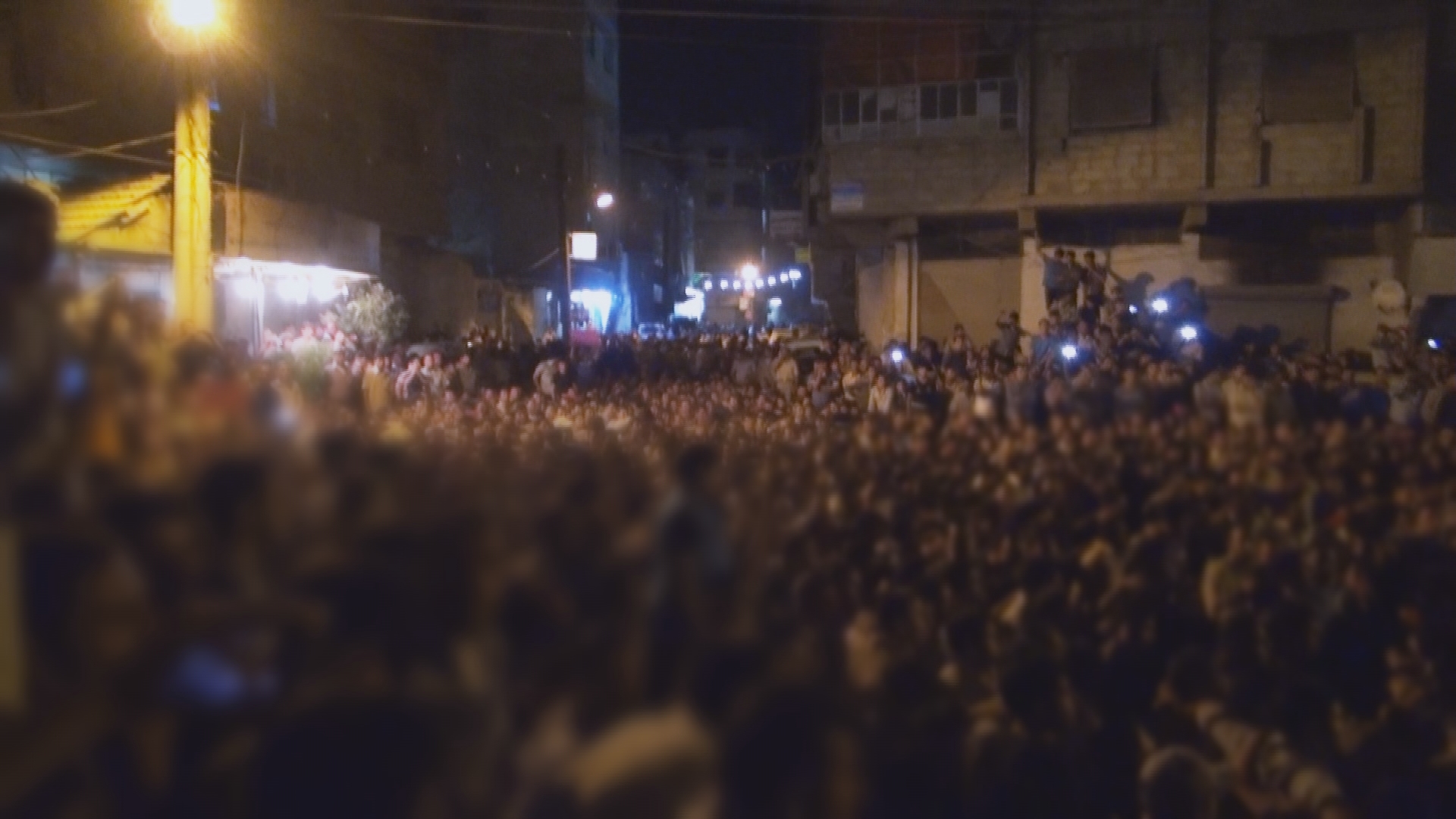
Syria’s Assad Denies Knowledge of Slain Singer
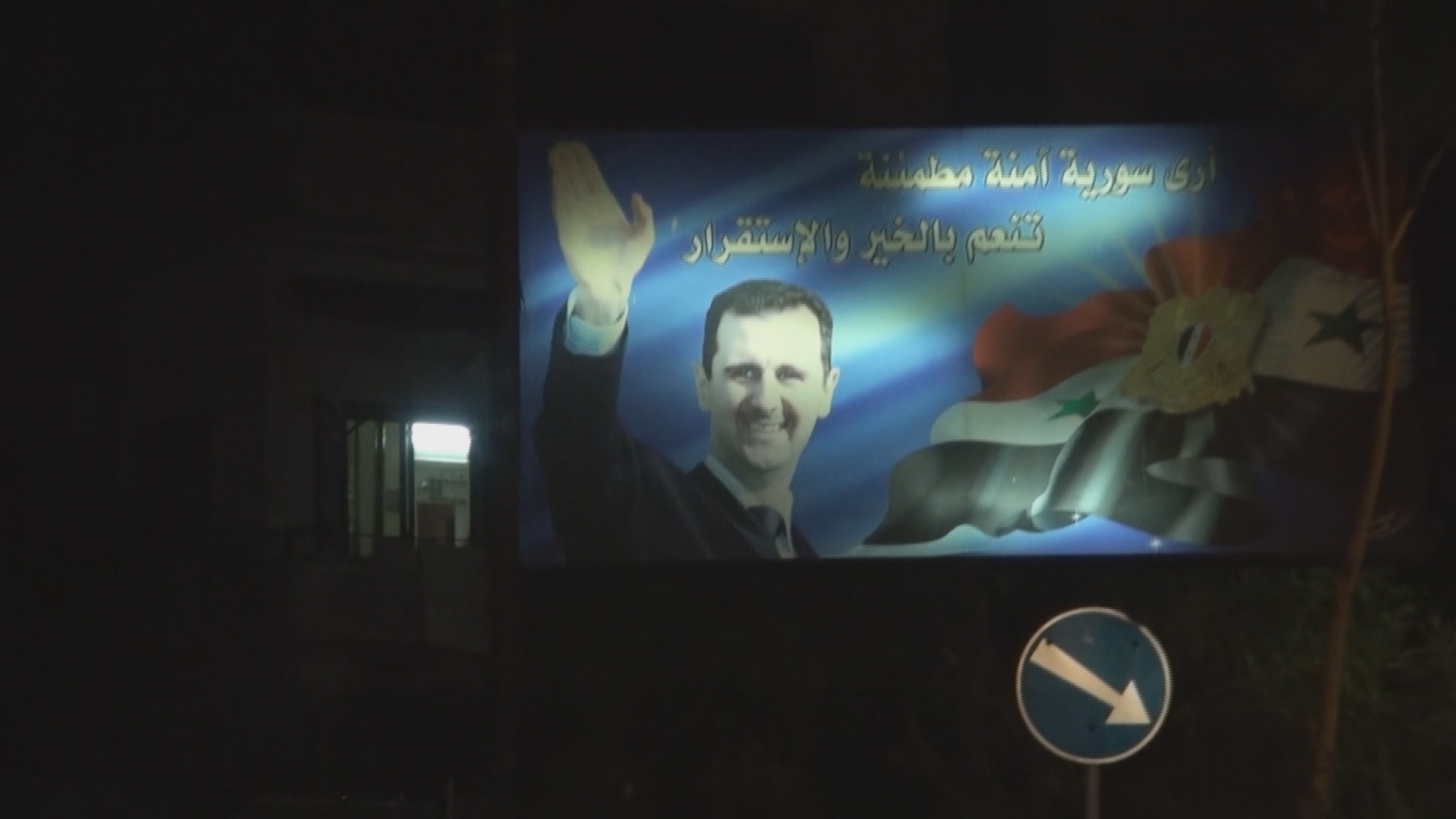
Pressure Mounts on Syria as U.N. Calls for Action to Prevent Civil War
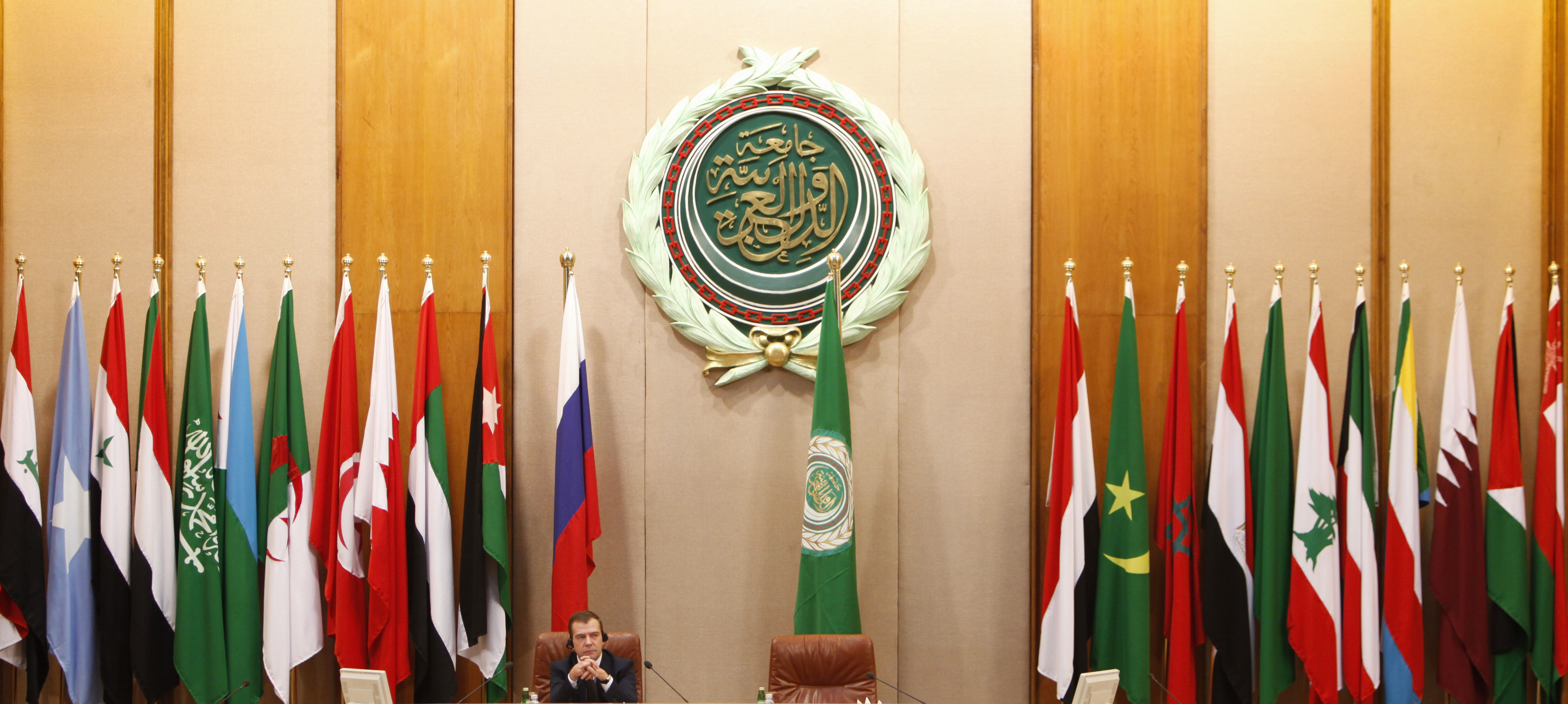
UPDATED: A Guide to Sanctions on Syria

Syria More Isolated Than Ever as Arab League Suspension Takes Effect
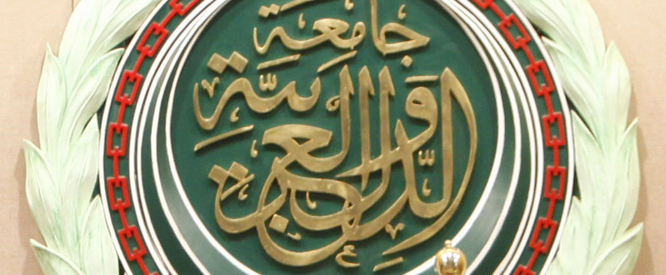
Syria Calls Arab League Suspension “Extremely Dangerous Step”
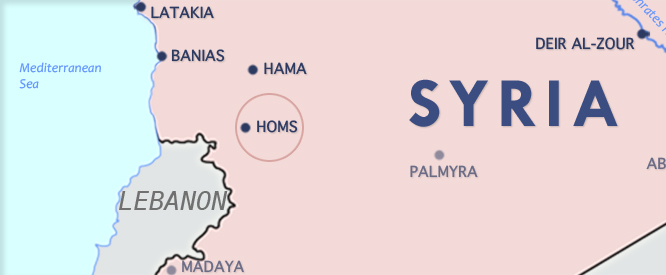
Report: Violence in Syria Amounts to Crimes Against Humanity
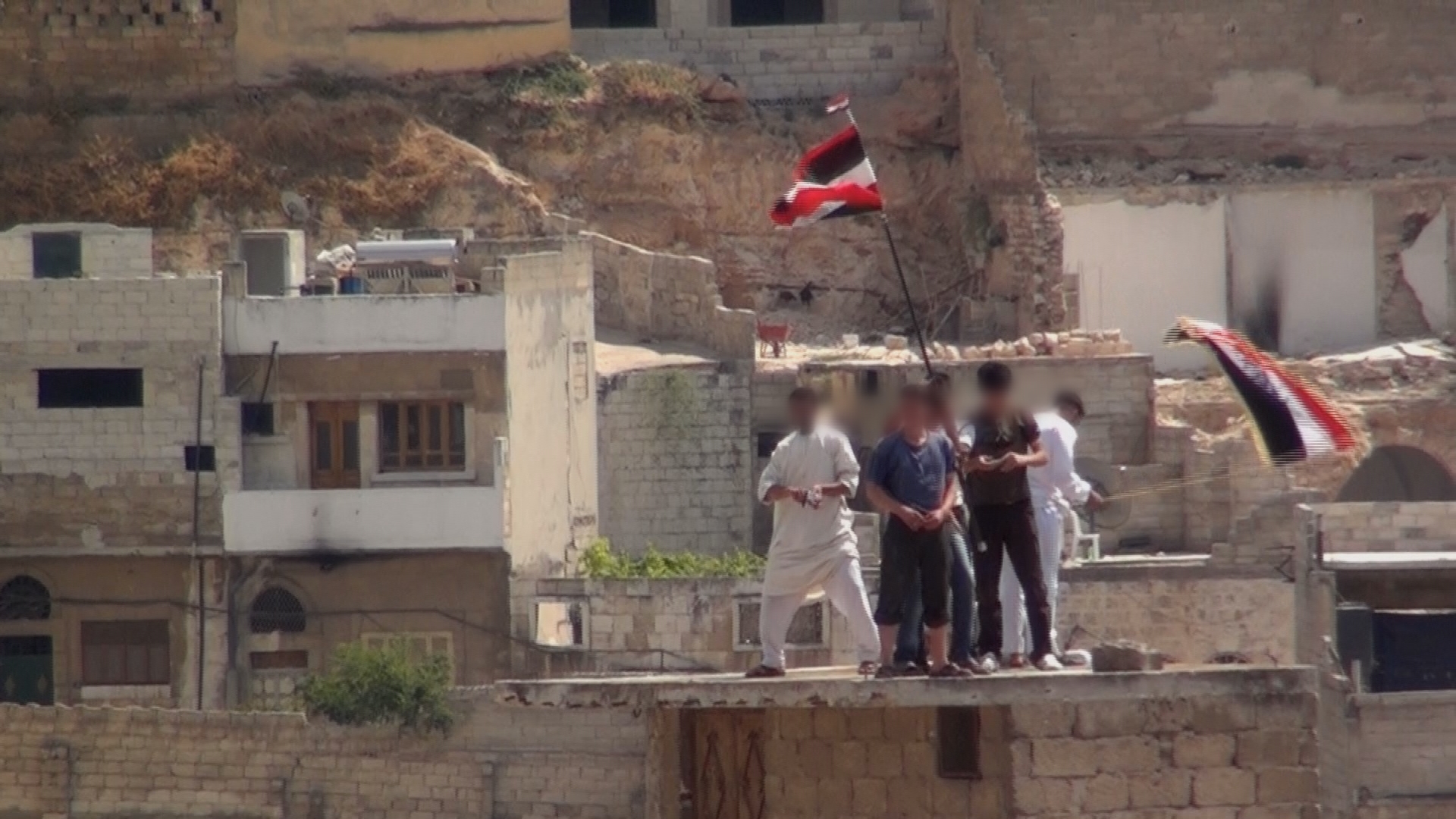
Q&A: A Closer Look at Syria’s Fragmented Opposition

“If We Didn’t Shoot at Protesters, They Would Shoot Us.”
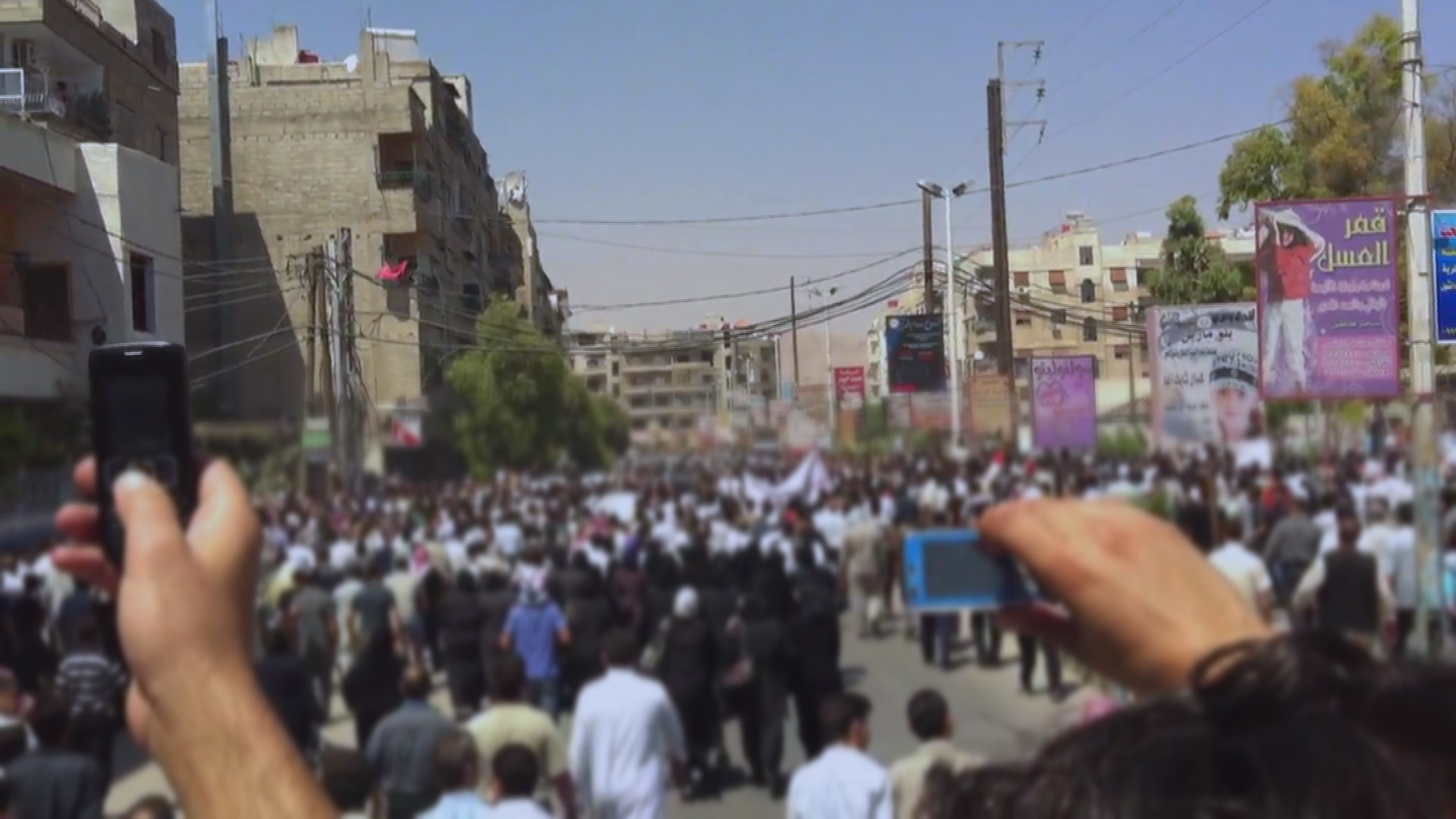
Live Chat 1 p.m. ET: Inside the Struggle for Syria
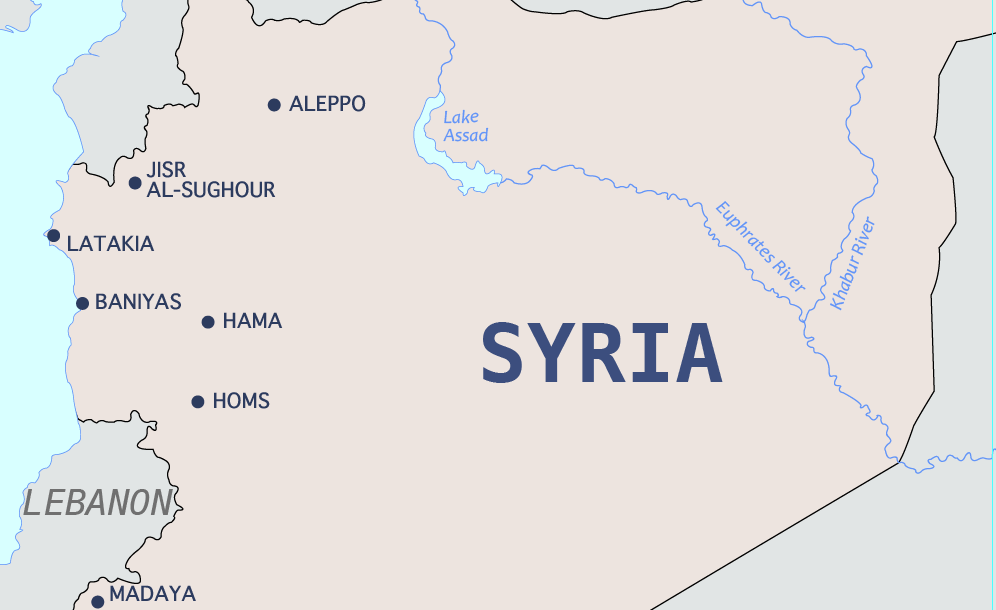
Interactive Map: Syria’s Uprising
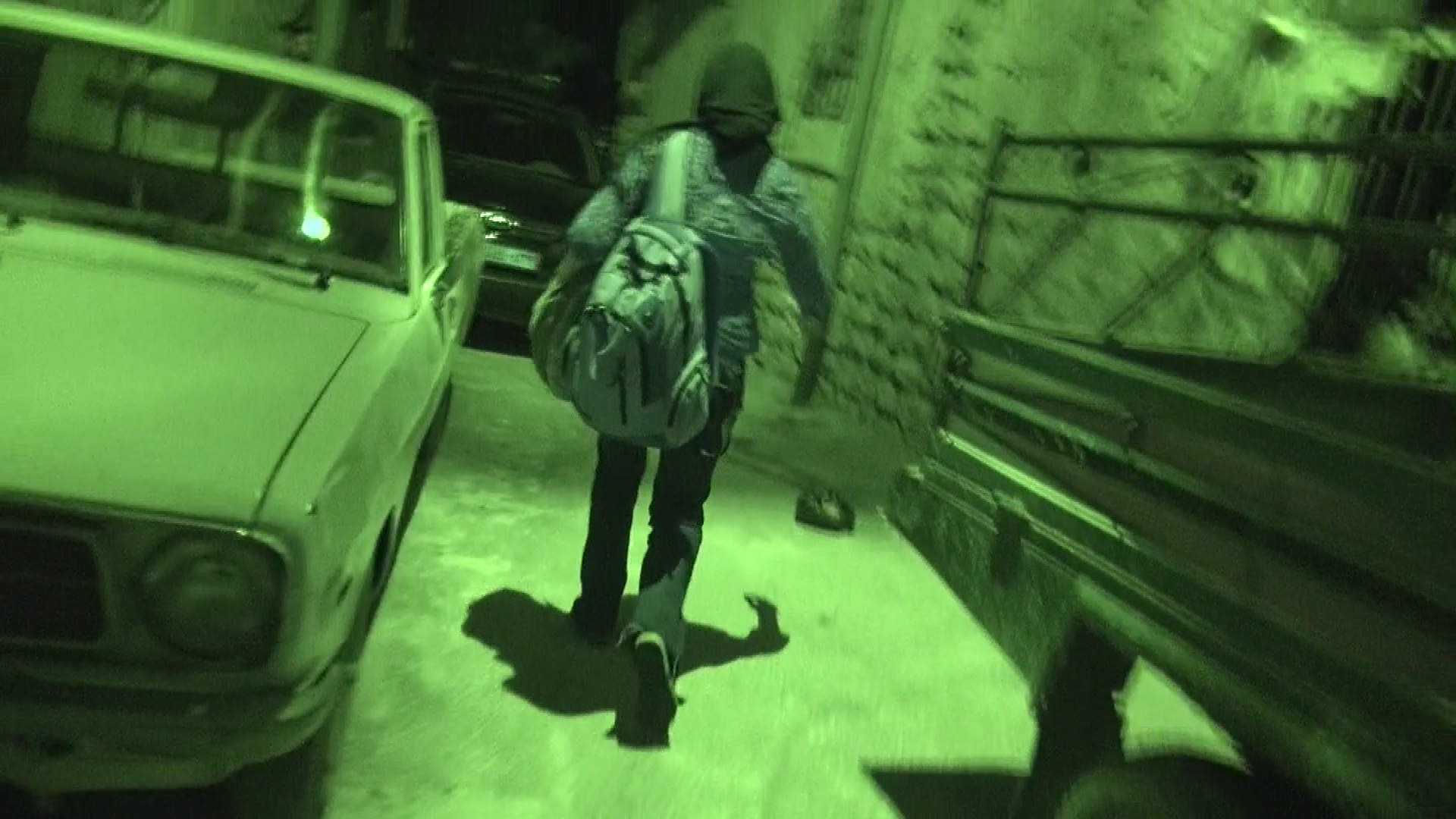
Going Undercover in Syria: How Did She Do It?
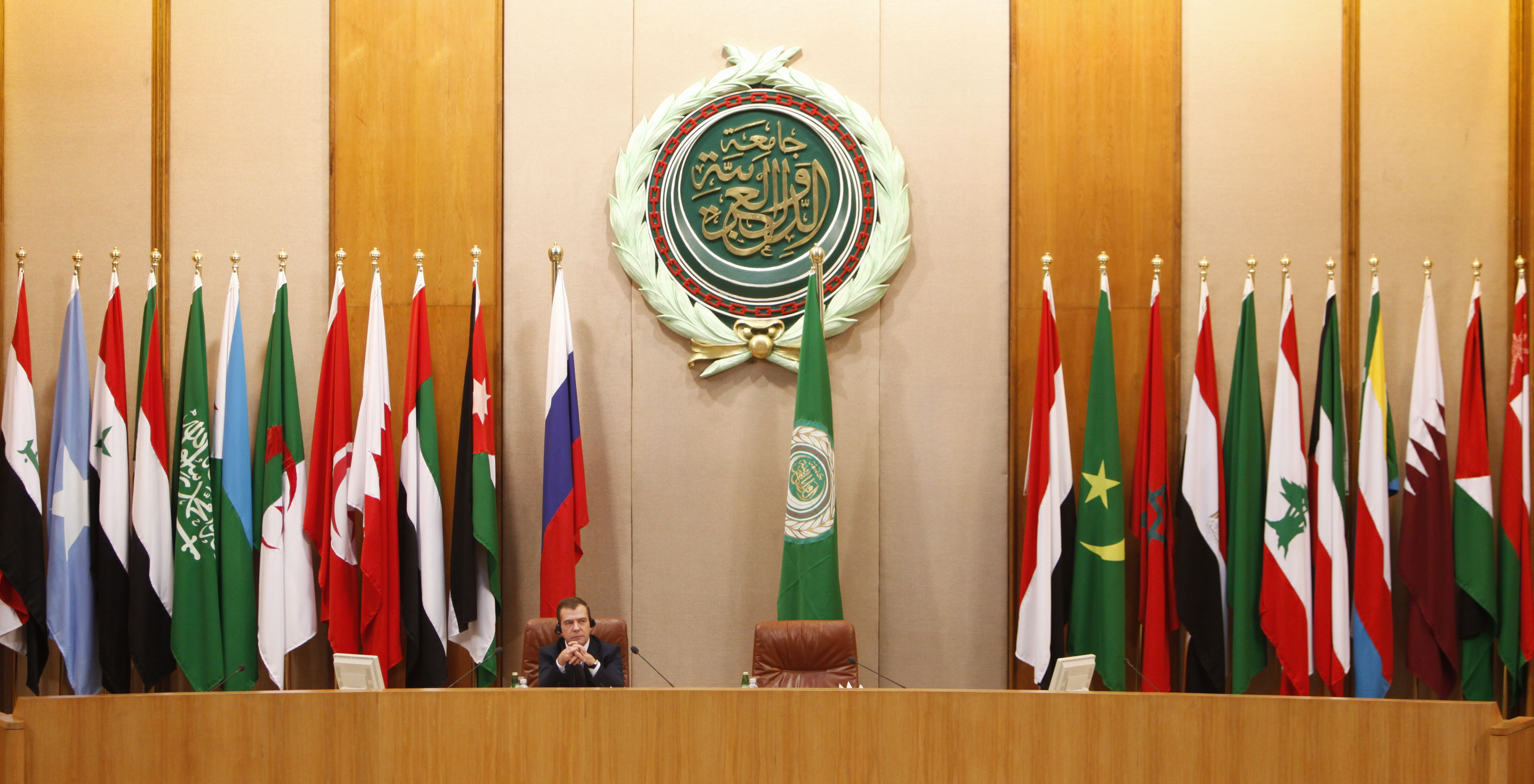
How the World Stacks Up on Syria
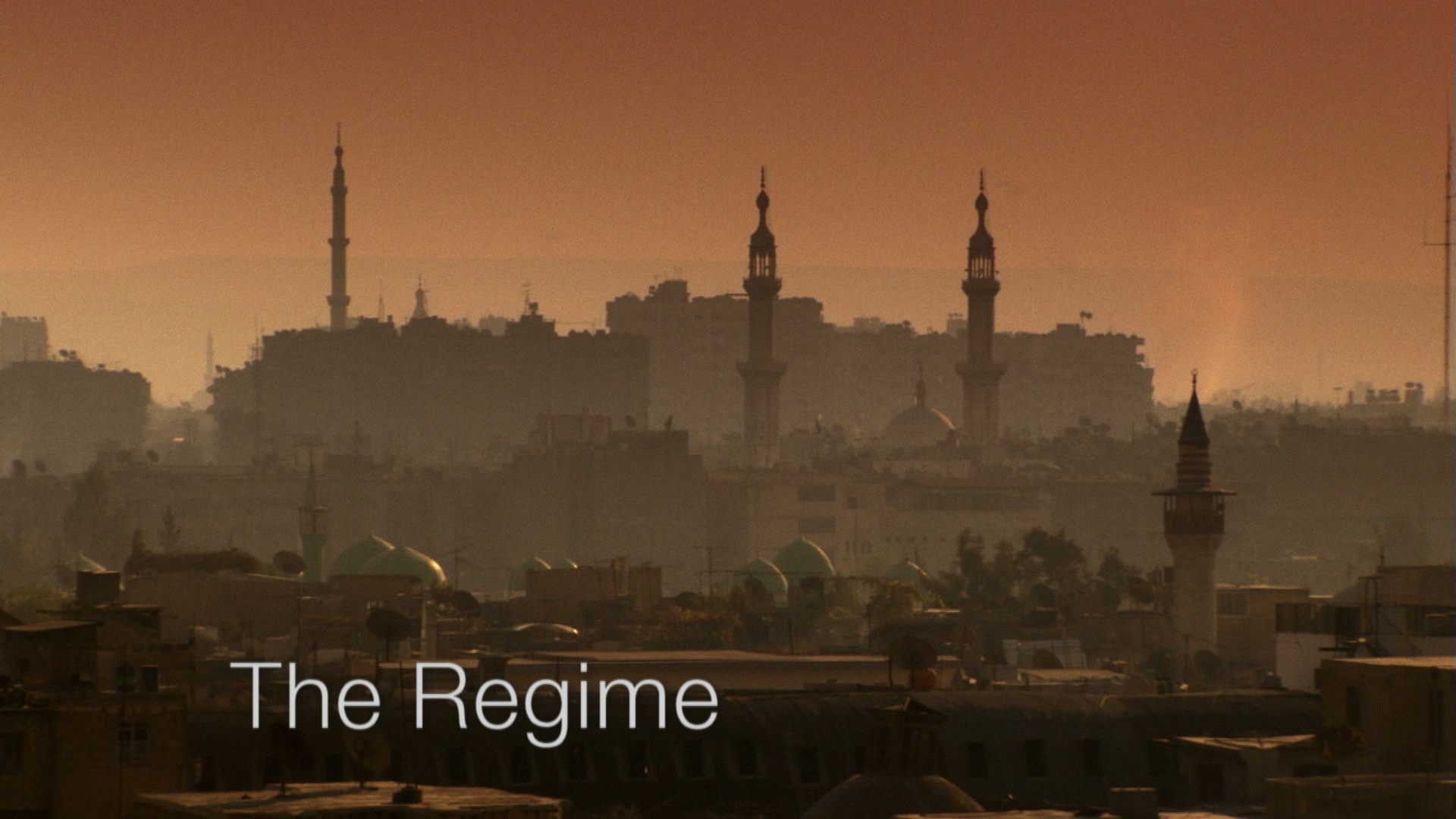
Syria’s Secretive Ruling Minority Sect
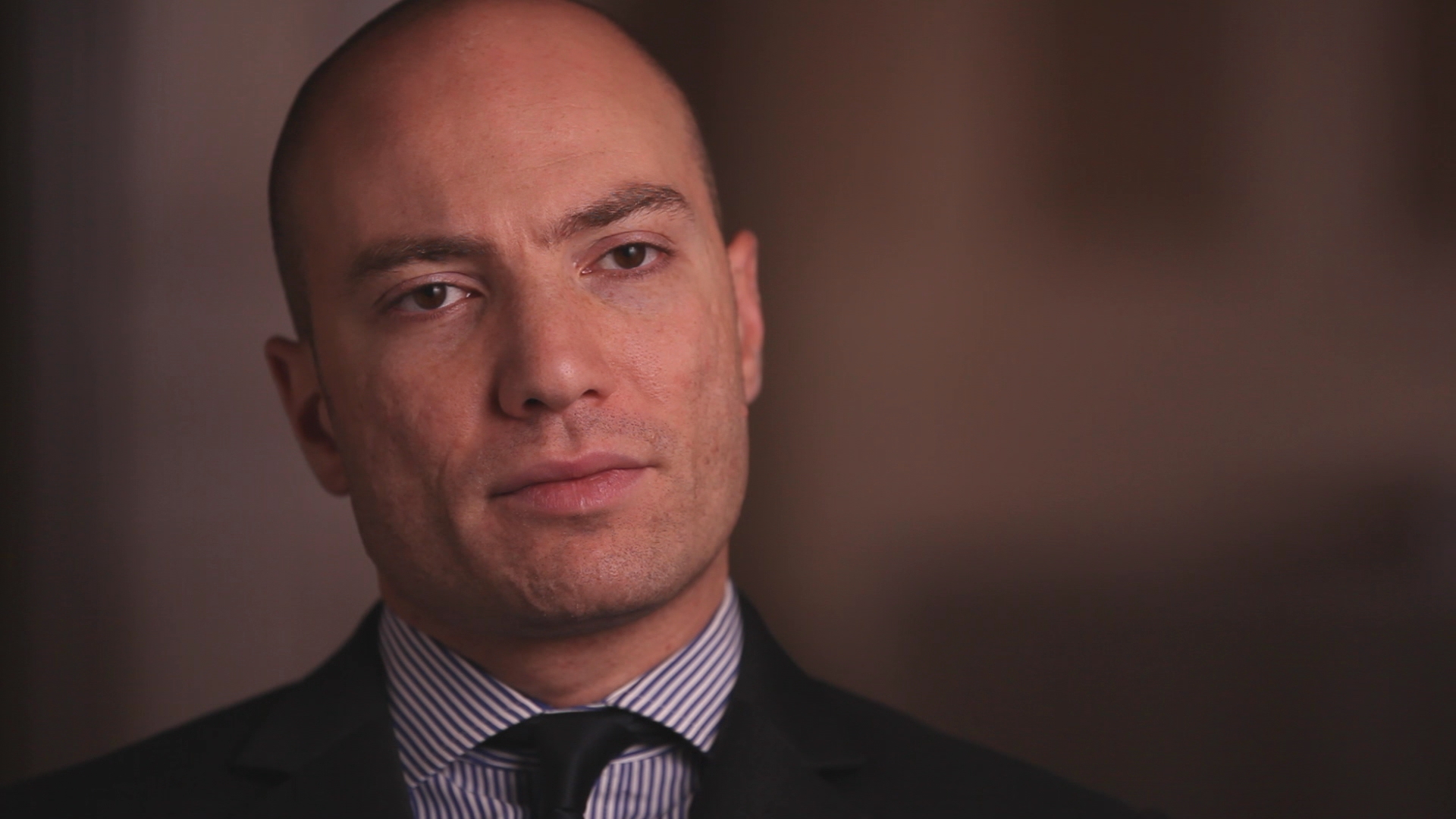
Exiled Dissident Ausama Monajed: “The End of the Regime Is Very Close”
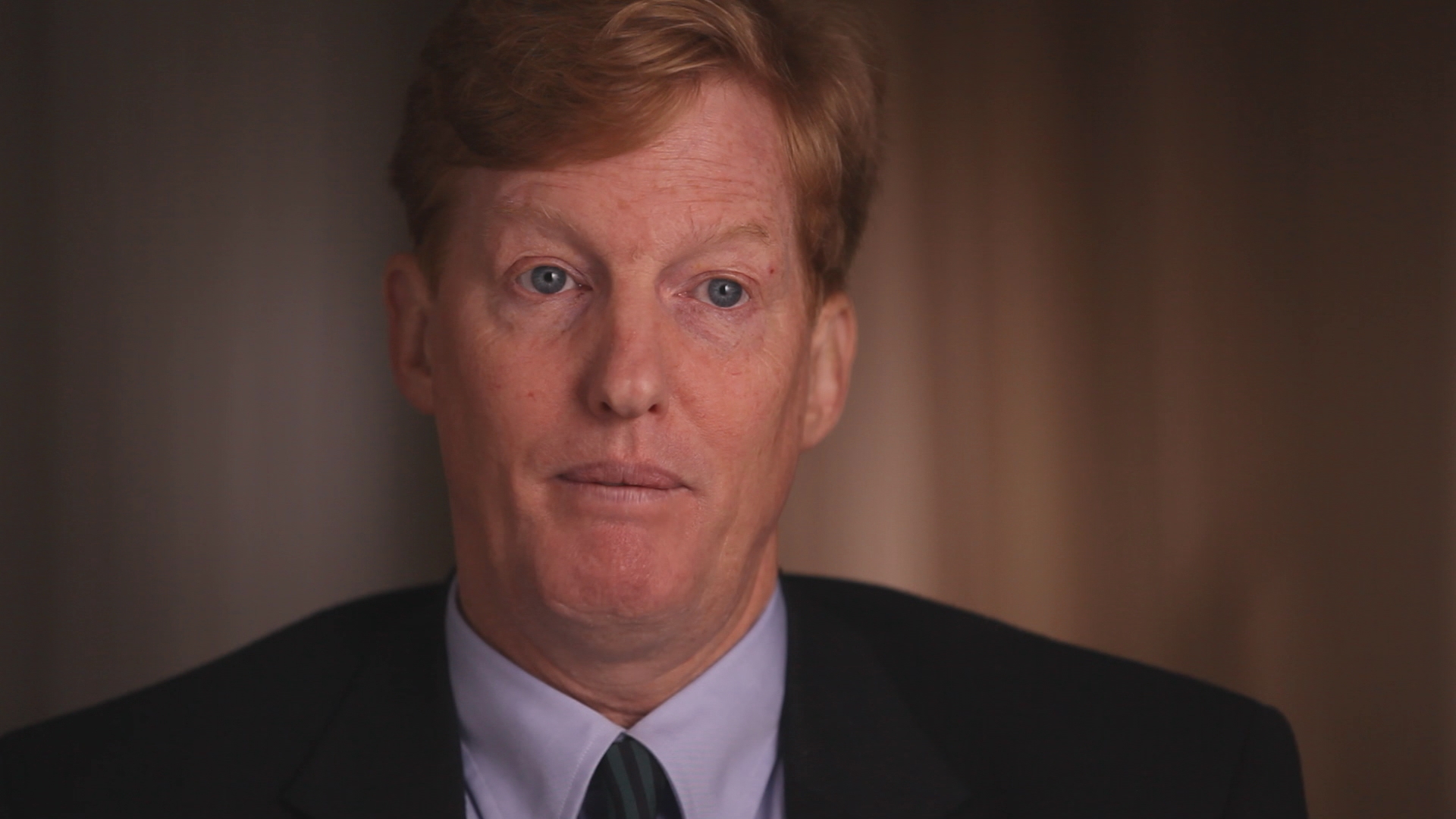
Joshua Landis: “I Don’t See Light at the End of the Tunnel.”
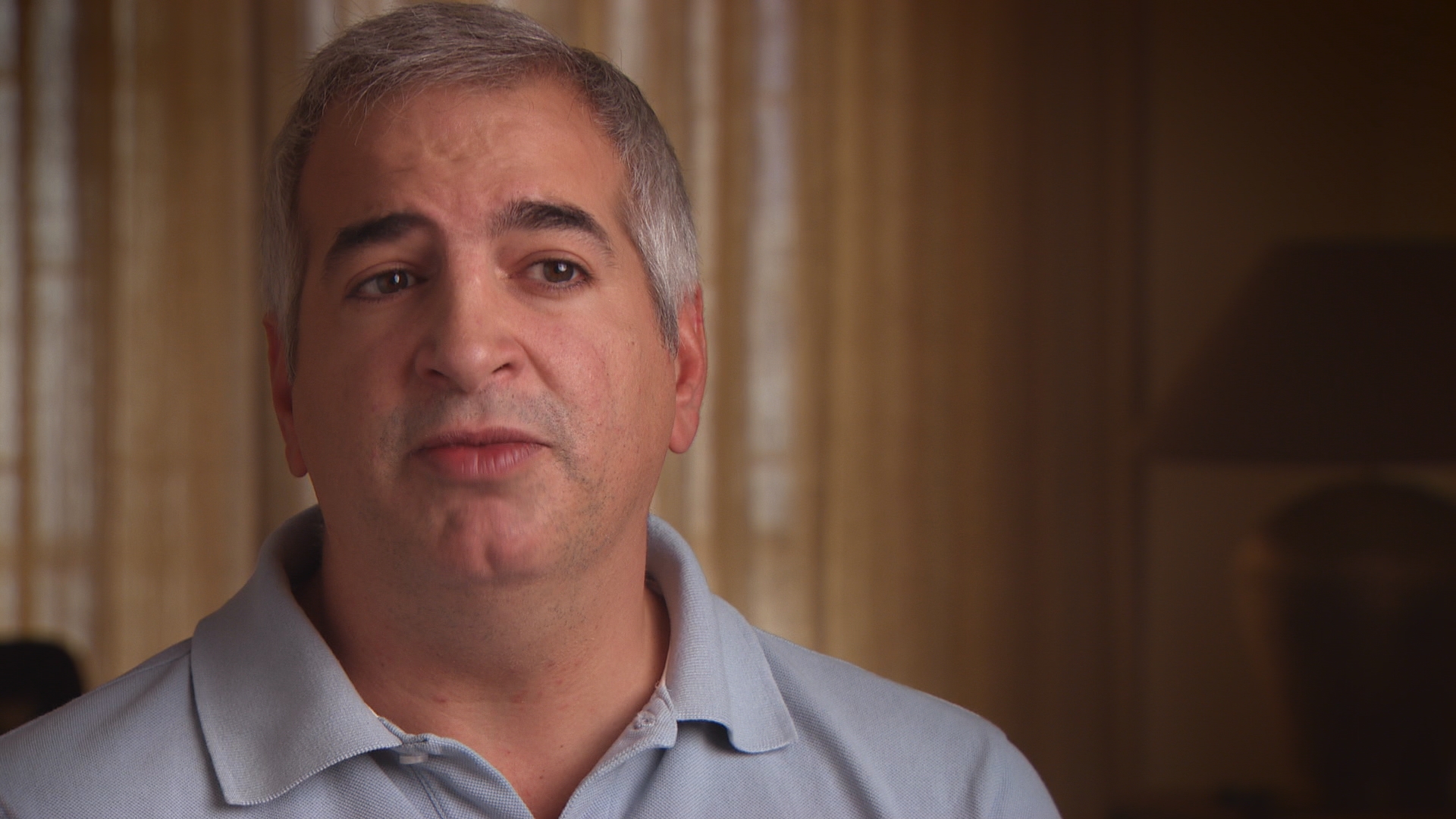
Anthony Shadid: Time Is Running Out for a Better Future for Syria
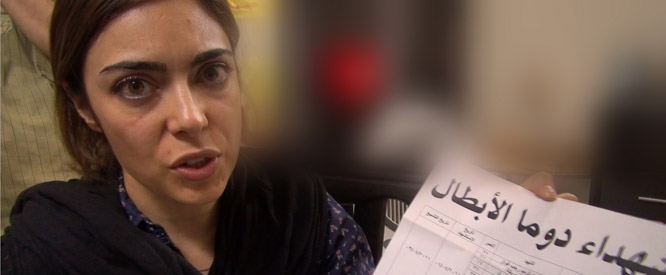
“Gutsy Reporting Takes Viewers Right to the Edge of the Danger Zone”

Anthony Shadid: “In Assad’s Syria, There Is No Imagination”
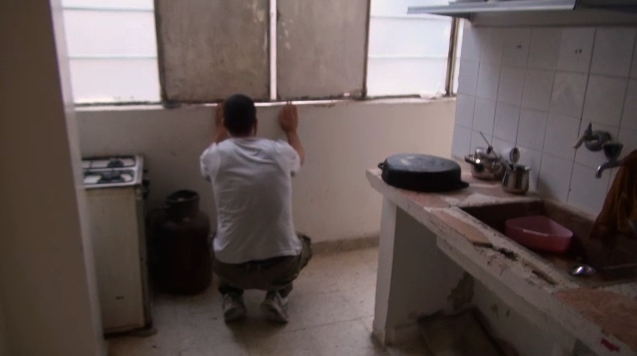
Inside the Underground Lives of Syrian Activists

Syria Agrees to Cease-Fire Proposal

Syrian President Warns Against Western Intervention
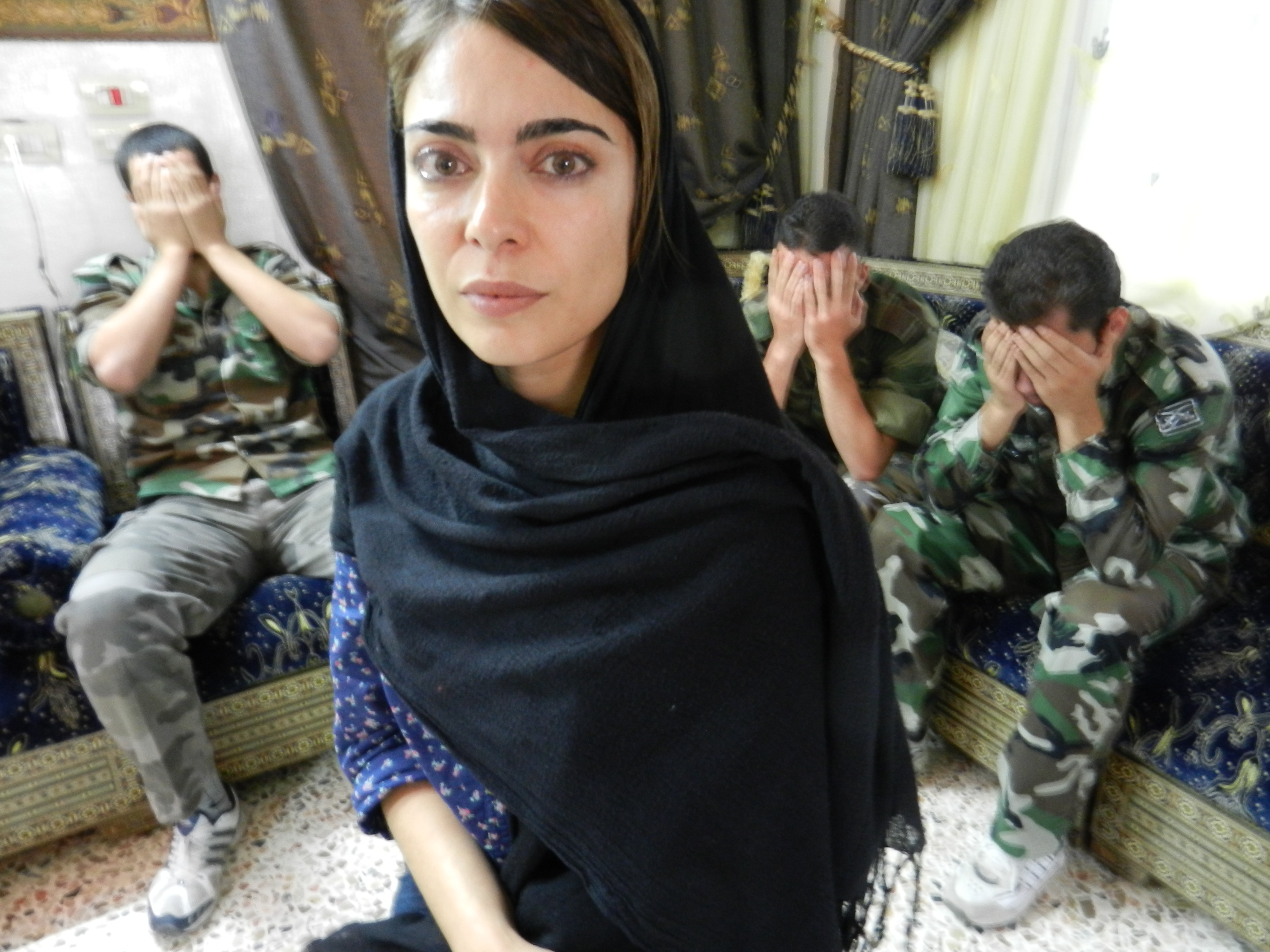
“Wherever We Went We Heard Stories of People Being Arrested and Tortured”
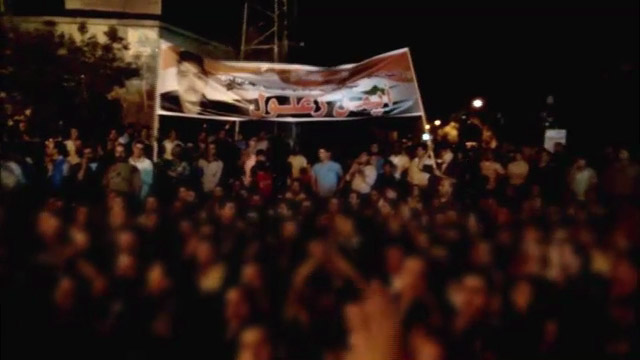
Syrian Activists Run Secret Hospitals to Avoid Brutal Gov’t Crackdown
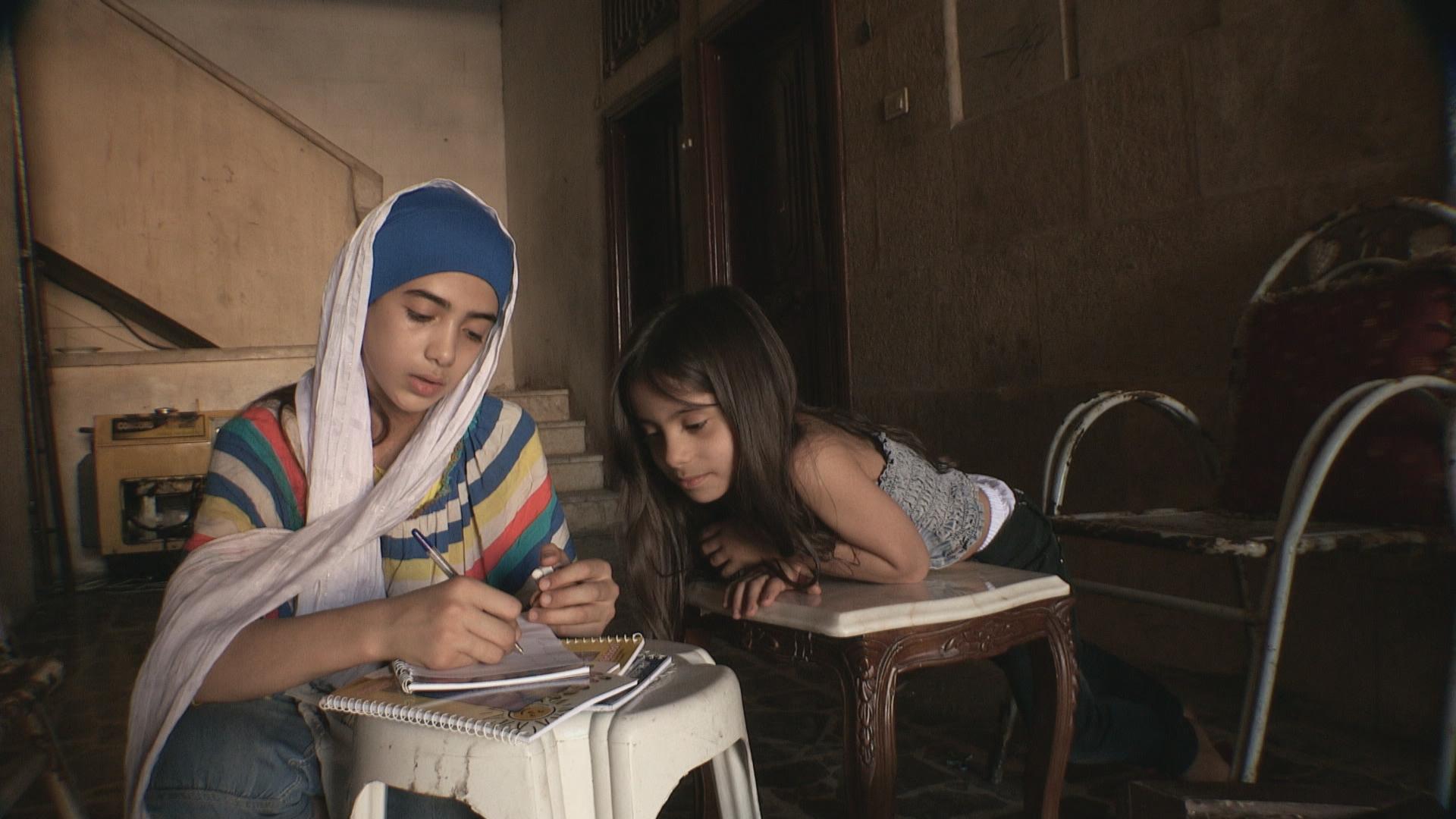
Children of Syria
Related Stories

11 Years into the Syrian Conflict, Explore its Evolution, Toll & Putin’s Role

10 Years in, Explore the Syrian Conflict’s Origins, Evolution and Toll in These Streaming Documentaries

Syrian President Warns Against Western Intervention

Syria Two Years Later: Bloody Civil War With No End In Sight

What’s Known about Syria’s “Murky” Opposition

The Troubled History of Hama, Syria

Blast in Hama, Opposition Stronghold, Disrupts Fragile Syrian Ceasefire

Will Syrian Truce Hold?

“Syrian Society Is Beginning to Fall Apart”

With Russian Support, U.N. Security Council Adopts Watered-Down Statement on Syria

Syrian Opposition Accused of Serious Human Rights Abuses

Syria One Year Later: Growing Evidence of Torture, Detainee Abuse

Rare Video Evidence of Torture in Syrian Hospitals

One Woman’s Proposal to Halt the Violence in Syria

Why Hasn’t Syria’s Assad Been Labeled A War Criminal?

What Is Al Qaeda Doing in Syria?

U.N. Report Accuses Syria of Crimes Against Humanity

How Has Syria’s Assad Managed to Hold Power for So Long?

Violence Intensifies in Homs after U.N. Resolution on Syria Fails

On 30th Anniversary of Hama Massacre, Syrian Troops Lock Down City

High-Stakes Showdown Over Syria at the U.N.

Syria: “We No Longer Want Arab Solutions to the Crisis”

Syria’s Assad Denies Knowledge of Slain Singer

Pressure Mounts on Syria as U.N. Calls for Action to Prevent Civil War

UPDATED: A Guide to Sanctions on Syria

Syria More Isolated Than Ever as Arab League Suspension Takes Effect

Syria Calls Arab League Suspension “Extremely Dangerous Step”

Report: Violence in Syria Amounts to Crimes Against Humanity

Q&A: A Closer Look at Syria’s Fragmented Opposition

“If We Didn’t Shoot at Protesters, They Would Shoot Us.”

Live Chat 1 p.m. ET: Inside the Struggle for Syria

Interactive Map: Syria’s Uprising

Going Undercover in Syria: How Did She Do It?

How the World Stacks Up on Syria

Syria’s Secretive Ruling Minority Sect

Exiled Dissident Ausama Monajed: “The End of the Regime Is Very Close”

Joshua Landis: “I Don’t See Light at the End of the Tunnel.”

Anthony Shadid: Time Is Running Out for a Better Future for Syria

“Gutsy Reporting Takes Viewers Right to the Edge of the Danger Zone”

Anthony Shadid: “In Assad’s Syria, There Is No Imagination”

Inside the Underground Lives of Syrian Activists

Syria Agrees to Cease-Fire Proposal

Syrian President Warns Against Western Intervention

“Wherever We Went We Heard Stories of People Being Arrested and Tortured”

Syrian Activists Run Secret Hospitals to Avoid Brutal Gov’t Crackdown

Children of Syria
Reported with Anthony Shadid.
NARRATOR: What kind of government turns so fiercely on its own citizens? What kind of man is its leader? And why does what happens here matter?
ANTHONY SHADID, The New York Times: I think it would be easy to make the argument that Syria’s rebellion is the most important of all the rebellions happening in the Arab world. Syria is so embedded in the relationships in the region, its longstanding alliance with Iran, its longstanding alliance with Hezbollah. The border it shares with Israel, the border it shares with Turkey and Iraq. And the idea that something could spiral out of control very quickly is not is not beyond the realm of possibility.
NARRATOR: The Syrian rebellion began in a small farming town 60 miles south of Damascus. On March 6th, 15 young boys painted messages on these school walls.
[Graffiti, subtitles: “Freedom, freedom and freedom, only. ” “Down with the corrupt Assad.”]
AUSAMA MONAJED, Spokesman, Syrian Opposition: They were copying what they’ve been listening to in Al Jazeera and other TV channels covering the Egyptian uprising and the Tunisian uprising.
NARRATOR: Soon after, the boys were rounded up by the government’s secret police, the Mukhabarat. Their fathers went to see the police chief, a cousin of Syria’s president, Bashar al Assad, and begged him to release their children.
AUSAMA MONAJED: He refused. And he said, “Forget that you have these kids. Go and make other ones.”
MURHAF JOUEJATI, Middle East Scholar: And if they were not men enough to make children, then, “Bring us your wives, and we will make children for you.”
NARRATOR: One boy was never returned. He is presumed dead. Images of another circulated on You Tube.
AMR AL AZM, Syrian Analyst: Several of the children had their fingernails pulled out. They were beaten. And there are even reports of rape being committed against these children.
And in a close-knit tribal society like that, there was only one thing they could do, they rioted.
ANTHONY SHADID: That very instance of repression, of torture, seemed to galvanize the town itself. Here were the children of the town being mistreated by a government that was distant, that had neglected Deraa. And almost from that moment, the uprising seemed to gained momentum.
MURHAF JOUEJATI: It led to a major demonstration that was put down brutally by force, with the killing of several civilians. And it snowballed from there.
NARRATOR: Many Syrians, who hoped that President Bashar al Assad might intervene, felt betrayed.
AUSAMA MONAJED: Those who believed in President Bashar al Assad lost all that faith when the first bullet was fired at a civilian in the street in Syria.
NARRATOR: For over four decades, the Assads have ruled Syria, a fractious country of many tribes and religions. The Assads come from a long-persecuted minority Muslim sect, the Alawites.
DAVID LESCH, Author, The New Lion of Damascus: The Alawites had traditionally been the repressed and oppressed in the country. In fact, a famous Sunni medieval philosopher by the name of Ibn Taymiyyah once declared that the Alawites were worse than Jews and Christians and were infidels and there should be holy war carried out against them.
[www.pbs.org: Who are Syria’s Alawites?]
NARRATOR: But Hafez al Assad found a path to power through the military. Under French colonial rule, Sunnis had resisted serving, while Alawites like Hafez found opportunity. The young Assad was also a rising star in Syria’s Socialist Ba’ath Party. At age 40, he engineered a coup to seize the presidency.
ANTHONY SHADID: Hafez al Assad rose to power from the bottom up. He had to fight the battles that came with the coup d’etats, that came with trying to corral the different forces of the country into his camp.
NARRATOR: He ruled by putting trusted family members in high government posts.
JOSHUA LANDIS, Middle East Scholar: The brother is in charge of security, the cousins of the banking system, in-laws in security, as well, military. So the reality is, this is a family business.
NARRATOR: And like Tito in Yugoslavia, or Hussein in Iraq, Assad also knew how to use force. His Ba’ath Party repressed any ethnic or religious challenges.
DAVID LESCH: The Ba’ath Party promised to get rid of sectarianism. He demanded, and for the most part, the Syrian population was receptive to this Faustian bargain, that the Syrian people would accept a little bit less freedom and liberty in return for stability.
NARRATOR: Assad also secured his power by taking in millions in Soviet military aid and welcoming thousands of Soviet advisers.
But in 1979, there was a revolution in Iran. The dynasty of the Shah was replaced by an Islamic state under Ayatollah Khomeini. In Syria and across the Middle East, Islamic fundamentalists rose up.
DAVID LESCH: And there were attacks against the regime. It was essentially almost a civil war.
NARRATOR: A bombing campaign targeted government buildings and Alawite military officers. The attacks went on for several years.
DAVID LESCH: And in 1982, the regime basically said, “That’s it. That’s enough. We have to deal with this once and for all. We have to show that we’re in control.”
NARRATOR: Their chief target was the stronghold of Syria’s Muslim Brotherhood, Hama.
ANDREW TABLER, Author, In the Lion’s Den: In 1982, the Syrian regime launched one of the worst massacres in the history of the Middle East. The regime used artillery to level large parts of the town. Between 10,000 and 30,000 people were killed or were disappeared by the regime.
NARRATOR: Bodies were buried before these pictures were taken.
AMR AL AZM, Syrian Scholar: I just remember there was a lot of rubble and a lot of destruction. It looked like a war zone.
NARRATOR: Amr al Azm was studying archeology. On his way to a dig, he drove through the city.
AMR AL AZM: And the other thing I remember were these neatly bulldozed area where areas had been cleared and bulldozed as we drove through the city. These were probably also the mass graves that everybody talks about.
JOSHUA LANDIS: That was a very stark moment in which the Alawite-dominated regime, the Ba’ath Party, made it clear to Syria that it would not brook any opposition.
DAVID LESCH: It was a ruthless— obviously, a Machiavellian way to deal with a problem, but it did deal with the problem from the perspective of the Syrian regime because until recently, you really haven’t had any serious Islamist opposition to Hafez al Assad or his son when he came to power in 2000.
NARRATOR: A phrase was coined, “the Hama Rules,” the idea that you quash rebellion by making sure that your citizens know that you play by no rules at all.
Almost 30 years later, Hafez’s son, President Bashar al Assad, faces a similar test in Hama.
ANTHONY SHADID: Hama looked like Cairo. It looked like Tunis. This was a popular uprising. And the government was very threatened by that narrative.
I think there’s a sense out there within the government that what they’re facing right now is redolent of what they faced in the late ’70s and early ’80s. And it helps feed that notion that, “We can deal with this by security and security alone.”
AMR AL AZM: The regime has a playbook. If you’re faced with a crisis, go back to the playbook and see what we did the last time we got through a crisis. So the last time they got through a similar crisis was Hama. So you have a protest. You have an uprising. You suppress it. The playbook does not say negotiate with the protesters, so there’s no negotiation.
ANTHONY SHADID: One very high-ranking Turkish official told me that what’s going on inside the leadership is that Bashar’s mother herself is telling him that these are the same events, that they remind her of what happened in the late ’70s and early ’80s. And her advice to him is that he has to act like his father. He has to be strong, he has to be decisive, and he has to crush this element of rebellion against him.
[www.pbs.org: More from Anthony Shadid]
NARRATOR: Bashar sent in tanks, armored vehicles and snipers.
DAVID LESCH, Assad Biographer: This is how the Assads, both father and son, deal with domestic threats. They retreat into their Alawite fortress, and there’s this convulsive reaction to put down any sort of domestic threats, and to put them down ruthlessly.
NARRATOR: Many Syrians had hoped Bashar would be different than his father. During the first massacre of Hama, Bashar was studying medicine at the University of Damascus. The studious 17-year-old expressed no political ambitious. After graduation, he moved to London.
DAVID LESCH: He was not earmarked for the presidency. He was going to be an ophthalmologist and he was prepared to do that for the rest of his life.
NARRATOR: The heir apparent was Bashar’s older brother, Basil. But in 1994, he was killed in a car accident. Bashar was ordered to come home. He joined the Republican Guard and was sent to serve in Lebanon, preparing for the day he would take office.
AMR AL AZM: We all knew he was going to take over. We all knew that Hafez al Assad was on his last legs, if you want. You know, he was close to death. It was very clear that he was very ill. And the question was always how well groomed has Bashar been?
NARRATOR: He was inaugurated in July 2000. The young doctor, with his fashionable British-born Syrian wife, a former banker at JP Morgan, promised reform.
ANDREW TABLER: People were giddy with the idea of reform early on in Bashar’s reign. He opened up the country to the Internet. He lifted exit permits, which were required for Syrians to travel, and he allowed more trade in the country.
JOSHUA LANDIS, Editor, Syria Comment: He said, “We can open up. We’re going to have some private newspapers, private press, Internet.” And he believed that he could win the hearts and minds of the people through modernization and let a lot more light in.
MURHAF JOUEJATI, Middle East Scholar: He had allowed what became to be known as the “Damascus Spring.” He promised reforms, and he promised political reforms. And so there were political salons that began to emerge and people began to talk about ideas. How is Syria going to meet the future? Which path is it going to take? And there was an era, I would say, in the 2003, 2004 in which there was an open debate, and a healthy one.
JOSHUA LANDIS: He was genuinely popular amongst the young people, who hadn’t lived through his father and who saw him as a potential reformer. And he kept on telling them that life is going to get better. And they could see fairly dramatic changes, at least for the wealthy.
NARRATOR: In Damascus and Aleppo, the two largest cities, the transformation was evident.
DAVID LESCH: There’s been a great deal of infrastructural improvement in both cities. It’s very noticeable to anyone who’s been to Syria over the years. There’s been a nouveau riche that has been created.
ANTHONY SHADID: There was a sense of commercialism. People felt that they were seeing things in the street that they might see in Beirut, a much more prosperous city, in some ways.
NARRATOR: But the regime’s old guard watched the Damascus Spring with fear. They urged Bashar to stop his political reforms. They told him it would undermine the regime.
MURHAF JOUEJATI: The political establishment — the Ba’ath Party — and those in the senior ranks of authority decided that if this free political debate was going to continue, they were going to lose their heads. And so there was a sudden clampdown. It was the return of authoritarianism.
NARRATOR: In 2005, hundreds of activists and intellectuals were arrested. The Damascus Spring was over. For the next several years, as Syria faced drought and high unemployment, especially in the countryside, President Assad’s popularity eroded.
This year, a popular revolt in Tunisia toppled a dictator. Egypt was next. It was unclear if the Arab Spring would spread to Syria.
ANTHONY SHADID: There was a sense that there was going to be a contagion, that this unrest might spread to other parts of the Arab world. But even at that moment, I think there was a sense that Syria was too authoritarian. Syria wasn’t at the point where it would have fed a rebellion. And I think that’s why, until now, we’ve seen this uprising focused in the countryside, rather than the big cities.
This is a movement of the rural parts of Syria, this disenfranchised countryside that was stricken by drought, neglected by the government. And they had a lot less to lose, say, than the bigger cities like Damascus and Aleppo.
NARRATOR: At first, in rural towns like Deraa, Homs, Latakia and Hama, workers and farmers were timid in their demands.
AMR AL AZM: Initially, when the protest went out, people were asking for dignity. They were asking for housing, subsidized heating fuel. “We want jobs. We want cheap bread.”
MURHAF JOUEJATI: And it is only when the authorities turned brutal on them, deadly, that they began to chant that they want a change of regime.
[www.pbs.org: A map of Syria?s protests]
NARRATOR: A month after the uprising began, President Assad came before parliament. Syria’s business and political elites applauded him.
AMR AL AZM, Syrian Analyst: He walked in and it was all very jovial. There was a lot of clapping and cheering every time he spoke. At one point, one of the members of parliament stands up and says, “Sire, you are such a brilliant leader that you should not just be the leader of Syria, you should be the leader of the world.”
MURHAF JOUEJATI: The expectation— not only the popular expectation but the expectation of those circles of power were that Bashar al Assad was going to stand there and introduce a package of reforms that, hopefully, would allay these grievances and would meet with the popular demands. Instead, he stands up there to accuse this entire uprising of being a foreign conspiracy.
Pres. BASHAR AL ASSAD: [subtitles] They (conspirators) falsified pictures, made up misleading information, and they forged everything.
AMR AL AZM: There was no sense of remorse. That’s what shocked people. There seemed to be a complete detachment, as if, “Everything’s going to be OK. My people love me. And look, my car is being mobbed as I leave the parliament.”
NARRATOR: Outside Damascus, the calls for Bashar’s resignation were only getting louder.
PROTESTERS: [subtitles] Time to leave, Bashar!
NARRATOR: As the uprising spread, demonstrators picked up a song written by a bricklayer from Hama. Then it was recorded by a popular Syrian singer, Ibrahim Kashoush. It became the people’s anthem.
PROTESTERS: [subtitles] Time to leave, Bashar! To hell with you, Bashar! And anyone who supports you. I’m tired of looking at you. You’d better get out, Bashar!
AUSAMA MONAJED, Spokesman, Syrian Opposition: It’s kind of a popular song. And the lyrics was carefully chosen, and sometimes funny, sometimes humor, sometimes very deep. And it was soon all over the country.
NARRATOR: But in July, the singer was silenced.
AUSAMA MONAJED: Eventually, they got hold of him. And they tortured him brutally, to a limit that they took off his— his throat. And they ditched him in the river. When he was discovered, his throat was obviously cut out, just to send a message that whoever dares to chant against Bashar al Assad will face a similar destiny.
NARRATOR: The regime also organized mass rallies of its own. In Damascus and Aleppo, government workers were called to the streets.
SUPPORTERS: [subtitles] We want Bashar! God, Syria, and Bashar!
DAVID LESCH, Author, The New Lion of Damascus: There is a very strong well of support for the regime in those cities. And this is vital for the regime because the last thing they want to see is a situation that occurred in— in Egypt, in Tahrir Square, in the center of Cairo. You know, if that happens, if there are large-scale protests in Damascus and Aleppo, that’s when it becomes, you know, almost a certainty that the regime will fall.
JOSHUA LANDIS: Today, it’s the upper-class Sunnis from the cities who are hanging with the regime and feel like things were going in the right direction and they don’t see any alternative. And they’re frightened of the countryside getting too much power and taking over and perhaps being too fundamentalist and other things for them.
NARRATOR: For now, months after the uprising began, Bashar al Assad is holding on, even declaring victory.
JOSHUA LANDIS: Most people thought this regime would have crumbled and fallen by now. They gave it Ramadan. Everybody was saying Ramadan’s going to do it, six months, this sort of thing. And now we’re in the seventh month, and the regime is confident.
ANTHONY SHADID: There’s no question, at this point, that the Syrian government thinks it’s won. There’s a sign in Damascus these days that says, “It’s over.” Another sign says, “Congratulations, Damascus. We won.” I think there is a mindset in the government that does believe it’s won.
NARRATOR: But the opposition is not conceding. They have formed a political party and called for outside help. Defecting military officers have established their own militia. Syria’s neighbors now worry that a Syrian civil war is imminent and may overflow its borders.
ANTHONY SHADID: When the Arab revolts began at the beginning of the year, there was so much hope. But what we’re seeing with Syria is the danger, is the flip side of those Arab revolutions. Civil war in Syria would have reverberations immediately in the rest of the region. And I think everyone’s bracing themselves for that.
JOSHUA LANDIS: Syria is the hub of this tinderbox in a region which is extremely unstable. And should it fall and there be civil war, it could ignite flames of revolution and undermine regimes which are extremely important. So it’s hard to see where this ends.
WRITTEN AND PRODUCED BY Marcela Gaviria
REPORTED WITH Anthony Shadid
EDITOR Ben Howard
SENIOR PRODUCER Martin Smith
ASSOCIATE PRODUCER Rebecca Thomas
DIRECTORS OF PHOTOGRAPHY Ben McCoy Colin Clarke
SOUND Jason Pawlack Stuart Bruce
RESEARCH Carla Borras Katie Lannigan
PRODUCTION ASSISTANTS Julie Rasquin Dan Sugarman
ONLINE EDITOR/COLORIST Michael H. Amundson
SOUND MIX Jim Sullivan
TRANSLATION Ali Fadhil
PRODUCTION ACCOUNTANT Stef Gordon
MUSIC Justin Samaha
SPECIAL THANKS Deborah Amos Nada Bakri
NARRATOR Will Lyman
ARCHIVAL MATERIALS ABCNews VideoSource AP Archive Avaaz CNN ImageSource Corbis Getty Images ITN Source MrFootage Ltd. RIA Novosti Thought Equity Motion
A FRONTLINE production with RAINmedia
FOR FRONTLINE
DIRECTOR OF BROADCAST Tim Mangini
ASSOCIATE DIRECTOR OF BROADCAST Chris Fournelle
ON-AIR PROMOTION PRODUCER Missy Frederick
ON-AIR PROMOTION EDITOR John MacGibbon
POST PRODUCTION EDITORS Michael H. Amundson Jim Ferguson
ASSISTANT EDITORS Mark Dugas Eric P. Gulliver
POST PRODUCTION COORDINATOR Megan McGough
SERIES MUSIC Mason Daring Martin Brody
SENIOR PUBLICIST Diane Buxton
ONLINE ENGAGEMENT COORDINATOR Nathan Tobey
SECRETARY Christopher Kelleher
EDITORIAL SECRETARY Katie Lannigan
ADMINISTRATIVE COORDINATOR Heather Prince
CONTENT MANAGER Lisa Palone
LEGAL Eric Brass Jay Fialkov Janice Flood Scott Kardel
CONTRACTS MANAGER Lisa Sullivan
UNIT MANAGER Varonica Frye
BUSINESS MANAGER Tobee Phipps
ASSOCIATE PRODUCERS FOR DIGITAL Gretchen Gavett Azmat Khan
PODCAST PRODUCER/REPORTER Arun Rath
DIGITAL TECHNOLOGIST Bill Rockwood
SENIOR DIGITAL PRODUCER Sarah Moughty
WEBSITE DESIGN AND TECHNOLOGY Entropy Media, LLC
DESIGNER Maya Carmel
DIRECTOR OF NEW MEDIA & TECHNOLOGY Sam Bailey
DEPUTY STORY EDITOR Carla Borras
COORDINATING PRODUCER Robin Parmelee
SENIOR EDITORIAL CONSULTANT Louis Wiley Jr.
EXECUTIVE PRODUCER SPECIAL PROJECTS Michael Sullivan
DIRECTOR OF DIGITAL MEDIA/SENIOR EDITOR Andrew Golis
MANAGING EDITOR Philip Bennett
SERIES MANAGER Jim Bracciale
SERIES SENIOR PRODUCER Raney Aronson-Rath
EXECUTIVE PRODUCER David Fanning
©2011 WGBH EDUCATIONAL FOUNDATION ALL RIGHTS RESERVED
FRONTLINE is a production of WGBH/Boston, which is solely responsible for its content.
Explore
Policies
Teacher Center
Funding for FRONTLINE is provided through the support of PBS viewers and by the Corporation for Public Broadcasting, with major support from Ford Foundation. Additional funding is provided the Abrams Foundation, Park Foundation, John D. and Catherine T. MacArthur Foundation, Heising-Simons Foundation, and the FRONTLINE Trust, with major support from Jon and Jo Ann Hagler on behalf of the Jon L. Hagler Foundation, and additional support from Koo and Patricia Yuen. FRONTLINE is a registered trademark of WGBH Educational Foundation. Web Site Copyright ©1995-2025 WGBH Educational Foundation. PBS is a 501(c)(3) not-for-profit organization.
